Visa Traveler
Exploring the world one country at a time

Australia Visitor Visa: Requirements, Eligibility and Application Process
Updated: February 7, 2024
Australia Visitor Visa is the only option to visit Australia as a tourist for many nationalities. If you don’t qualify for either the Electronic Travel Authority(ETA) or the eVisitor Visa, then you will need to get a Visitor Visa.
Australia no longer accepts paper applications for the visitor visa. All applications must be lodged online through the Australian Government Immi Portal.
The Visitor Visa has subclass 600 in Australia’s visa documentation and the subtype we’re interested in is the “Tourist stream (apply outside Australia)”.
Quick summary:
- Eligibility: All nationalities are eligible
- Validity: Valid for 6 months, 1 year or 3 years with single or multiple entries
- Duration of stay: Generally, 3 months allowed stay, but up to 6 or 12 in some cases
- Visa fee: Visitors visa fee is 190 AUD
- Processing time: 50% of applications are processed in 7 days and 90% in 21 days.
If you haven’t already, read the Australia Visa Guide to familiarize yourself with Australian tourist visa types, requirements, eligibility and entry procedures at the border.
Table of Contents
Understanding australia visitor visa.
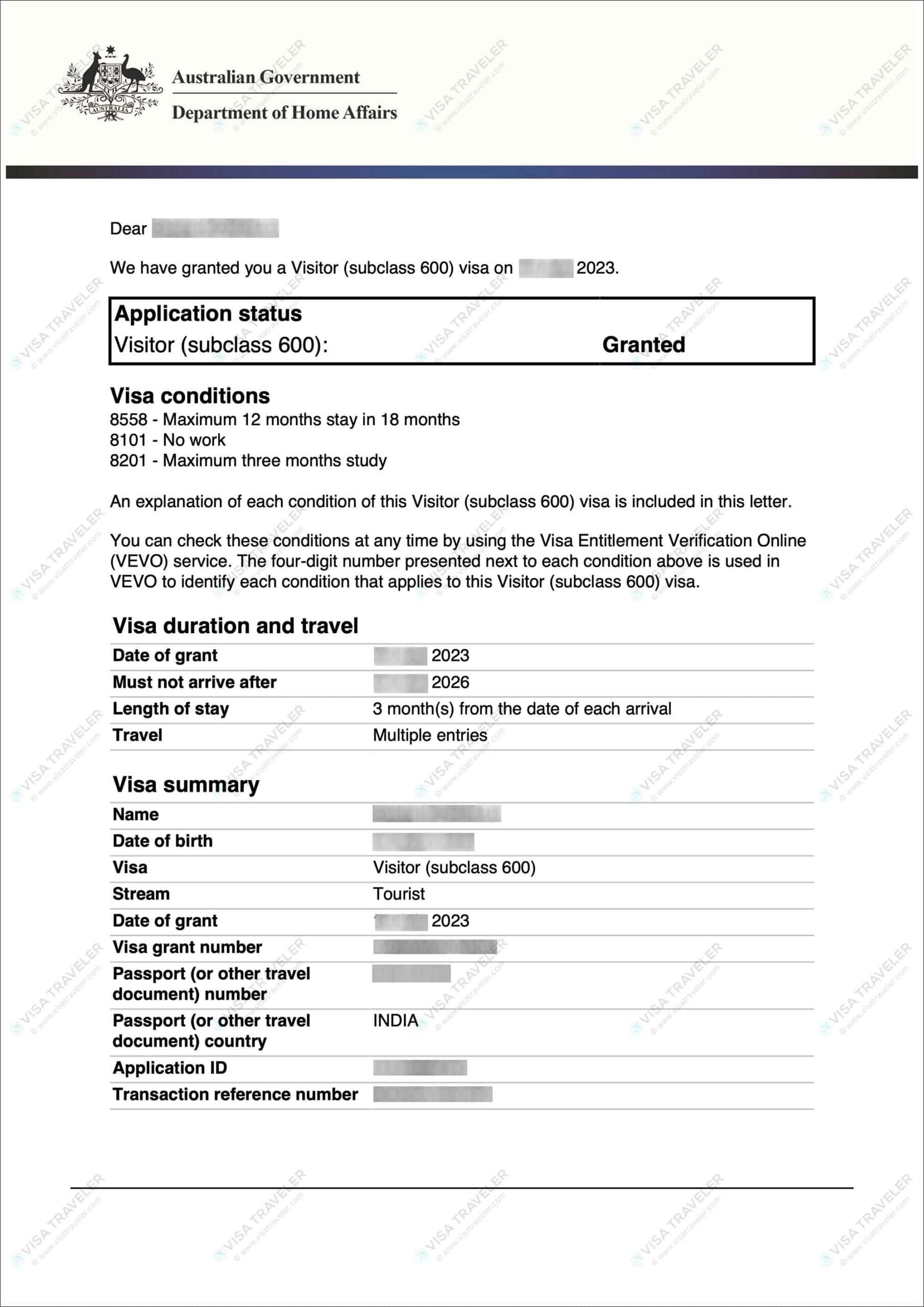
Visitor visa validity
The Australian Visitor visa is valid for 6 months, 1 year or 3 years from the date of issue. The validity of the visa depends on your nationality and circumstances. For example, most Indian passport holders get a 3-year valid Australian visa, whereas Phillippine passport holders get a 1-year valid visa. Pakistan nationals get a 6-month validity.
You must visit Australia within the validity of your visa.
Duration of stay
Most Visitor visas granted allow for 3 months of continuous stay in Australia. Depending on circumstances, you might be granted a stay of 6 months or even 12 months.
Allowed number of entries
Most Visitor visas are multiple-entry , but Home Affairs also issues single visas in certain circumstances for certain nationalities.
When to apply
Since the tourist visas are valid for at least 3 months, it’s a good idea to apply well in advance. Most applications get processed in 3 weeks or fewer.
Visa extension
Australia Visitor visa is non-extendable . If you need to extend your stay in Australia , you are allowed to apply for another Visitor Visa (onshore) from within the country.
Australia Visitor Visa Requirements
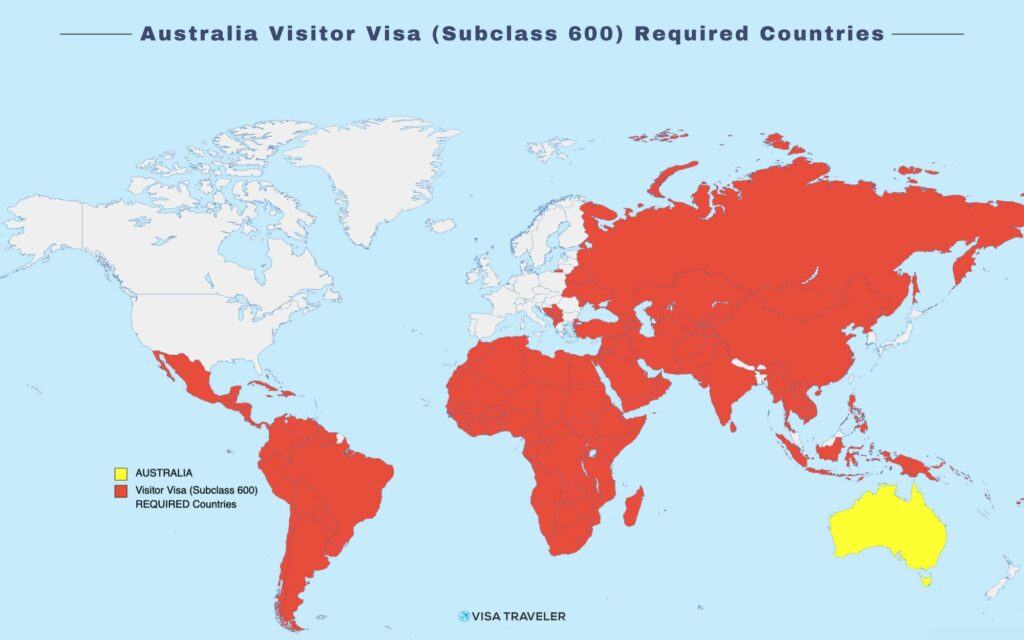
Who requires a Visitor Visa?
Australia Visitor Visa is REQUIRED for all nationalities to enter Australia as a tourist, except for the below.
- New Zealand passport holders
- Electronic Travel Authority (ETA)
- eVisitor Visa
- Those transiting in Australia for less than 72 hours and can get a Transit visa .
Documents required
To support your application, you can attach as many as 60 documents online. You don’t have to attach that many but the more documents you provide, the better your chances of approval.
You have to satisfy the Home Office that:
- You are who you say you are
- You are a genuine visitor who will not overstay or work illegally
- You are of good character and not have a criminal record
- You won’t be a burden to Australia’s healthcare system
To do this, attach as many of these documents as you can :
Identity documents
- Valid passport (must be valid for the duration of the stay)
- Valid National ID card (if from a country that issues them)
- marriage or divorce certificate;
- change of name documents;
- documents that show other names you have been known by
- Residence Permit/Visa (if residence and citizenship differ)
- One passport-size photo
Genuine visitor documents
- Itemized personal bank statements for the last 3 months. Aim to have at least 5000 AUD in your bank account. The money cannot be deposited suddenly and inexplicably – it should be from legitimate sources and savings over time.
- Tax returns
- Credit card statements
- their relationship to you
- the purpose of your visit and length of stay
- if you will be staying with them
- Proof of their funds (if they will be paying for your stay)
- Your plans or travel itinerary while in Australia
- a letter from your employer stating you plan to return to your job
- proof that you study at a school, college or university in your home country
- proof that you have immediate family members in your home country
- proof that you own a house or other major assets in your home country;
- Confirmed return flight ticket;
- Health Insurance
At a later date, you may be required to obtain and submit the following:
- Medical Certificate
- Police Clearance Certificate (PCC)
All non-English documents (except for police certificates) must be translated into English and all documents’ copies (both original and translations) must be certified.
Photo requirements
You need one passport-size digital photo for the Visitor Visa application. The photo must meet the following requirements.
- Taken in the last 6 months
- Showing your head and shoulders against a plain background
- Neutral facial expression with mouth closed, eyes open, and looking at the camera
- Religious head coverings are allowed but must not obscure the face
- Piercing is allowed but must not cause any reflections or shadows
There is no official guidance for the size and resolution of pictures uploaded online but the file type must be JPG. You will get to move the photo to position your face within a frame.
As long as the picture is clear, crisp, and not excessively big, it will be accepted.
Visitor visa fee
The Australian Tourist Visa application fee is 190 AUD , payable online.
You may also have to pay for:
- Health checks
- Police certificates
Processing time
Australian immigration reports that 50% of applications are processed in 7 days and 90% are processed in 21 days . These periods start after you submit your biometrics (if required).
Visitor Visa Application Process
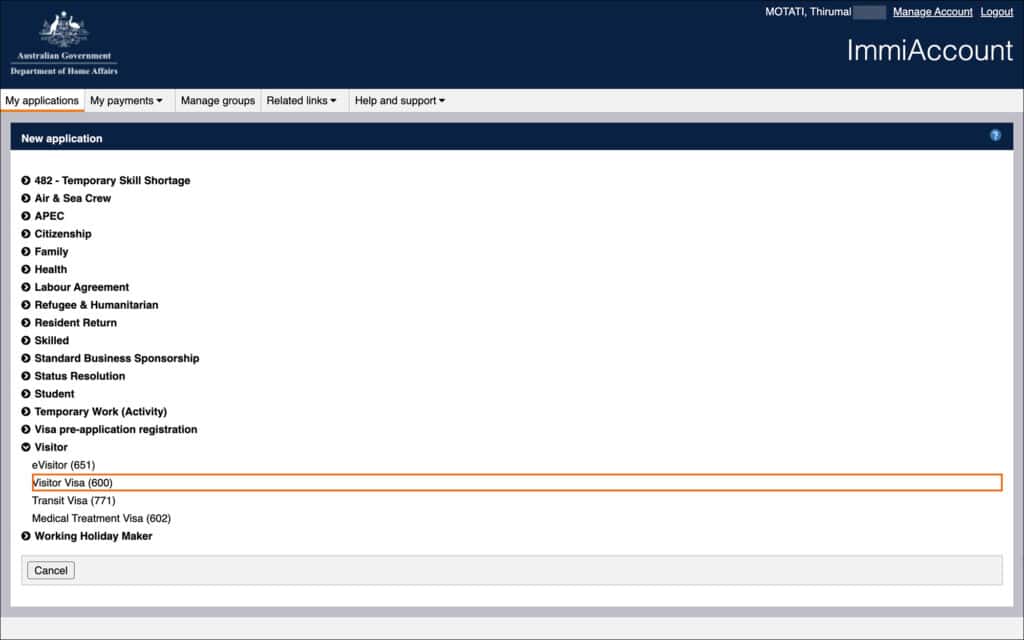
How to apply
You must apply for your tourist visa online through the Immi Portal. Applying on paper is not possible for the visitor visa anymore. Follow the below steps:
- Go to the ImmiAccount portal and create an account
- Click on “New application” and pick “Visitor Visa (600)”.
- Enter your personal information, passport details, employment details and financial information
- Upload your documents such as passport, photo, etc.
- Pay the required visa fee
- Submit the application
The Visitor Visa is part of Australia’s biometrics program. If you apply for a Visitor Visa from any of the below countries, regardless of your nationality, you must give your biometrics.
- Afghanistan
- Bosnia and Herzegovina
- Kazakhstan
- New Zealand
- Papua New Guinea
- Philippines
- Saudi Arabia
- Solomon Islands
- South Africa
- South Korea
- United Arab Emirates
If you apply from one of these countries, you will receive an email informing you that you need to visit an Australian Biometrics Collection Centre (ABCC) to have your biometrics collected. The biometrics are usually a face photo and fingerprint scan.
You must complete the biometrics procedure within 14 days of getting this email otherwise your application becomes void without a refund!
AABCs are typically managed by VFS Global. They charge a service fee for biometric collection. This fee depends on AABC and the country you are applying from.
For example, the biometric service at AABC in Dubai, UAE is AED 109.17. The biometric service fee at AABC in Manila, Philippines is PHP 557.
How to schedule biometric appointment?
Within 24 hours of applying for your Visitor Visa, you will receive an email with a biometric request letter from Home Affairs. Follow these steps to schedule your biometric appointment.
Find the nearest ABCC to you and follow the prompts to schedule your biometric appointment.
How to attend biometric appointment?
Follow the below steps to attend your biometric appointment at an AABC.
- Arrive at the AABC at least 15 minutes before your appointment time
- Original passport
- Biometric appointment confirmation
- Biometric fee receipt and
- Biometric request letter received in the email from Home Affairs
- Your facial photo is taken and your 10 fingertips are scanned
What if you can’t attend your appointment?
If you can’t make an appointment, you can reschedule your appointment up to 24 hours before your scheduled appointment date and time. You can reschedule up to 2 times.
What if you miss your appointment?
If you miss your scheduled appointment, you will lose the fee paid as the biometric fee is nonrefundable. You will also have to wait 24 hours to schedule a new appointment.
How to track status
You will receive the status of your application in your email. You can also track the status of the visa in your ImmiAccount.
How to download approved visa
When your Visitor Visa is approved, you will receive a grant letter in your email from Home Affairs. The grant letter is your Visitor Visa.
The Visitor visa is electronically linked to your passport, so you don’t need to download or print your Visitor Visa.
If you’re ever asked to show any proof, you can use the Grant Notification you received in your email. You can also download it from your ImmiAccount under “Visa Grant Details”.
How to check the validity of your Visitor Visa
The expiration date of your Australia eVisitor visa is indicated as “Must not arrive after” on the visa letter. If you lost your grant letter or don’t have a copy of your Visitor Visa, you can check the validity details on the Visa Entitlement Verification Online (VEVO) portal by using either your Visa Grant Number or Transaction Reference Number.
Customer service
Refer to the Self-help Guidelines for information to troubleshoot any issues. If facing issues with your ImmiAccount or the Visitor visa application, contact customer service using the below webform
Web: ImmiAccount Technical Support Form
Procedure at the border
The Visitor Visa is digitally attached to your passport so you don’t need to print anything. When you enter Australia, simply present your passport and be ready to answer a few basic questions about your visit.
Eligible passport holders can use the Smart Gates for faster arrival and departure procedures.
All visitors including Australian citizens are required to fill out an Incoming Passenger Card on arrival.
Frequently Asked Questions (FAQs)
How long does it take to get an australian tourist visa.
It can take up to 3 weeks to get an Australian tourist visa, especially if submitting your biometrics. It can be faster or slower depending on where you are applying from, your circumstances and the number of documents you submit.
How hard is it to get a tourist visa to Australia?
It is easy to get a tourist visa to Australia if you submit a complete application with as many documents. You must convince the Home Office that you won’t overstay or break the conditions of the visa.
How much bank balance is required for Australia tourist visa?
Australian Home Office doesn’t specify the minimum bank balance required for a tourist visa. Your bank account must show continuous cash flow and not a lump sum deposited recently.
Based on the reports from travelers reports and recommendations from embassies, you should aim for at least 5,000 AUD in your bank account when you apply.
Can you get a 3-year visitor visa to Australia?
Yes, you can get a 3-year visitor visa to Australia if are from an eligible country and meet the requirements. Australian Visitor Visa is issued for 6 months, 1 year or 3 years depending on your nationality and circumstances. For example, Indian nationals can get an Australian tourist visa valid for 3 years.
WRITTEN BY THIRUMAL MOTATI

Thirumal Motati is an expert in tourist visa matters. He has been traveling the world on tourist visas for more than a decade. With his expertise, he has obtained several tourist visas, including the most strenuous ones such as the US, UK, Canada, and Schengen, some of which were granted multiple times. He has also set foot inside US consulates on numerous occasions. Mr. Motati has uncovered the secrets to successful visa applications. His guidance has enabled countless individuals to obtain their visas and fulfill their travel dreams. His statements have been mentioned in publications like Yahoo, BBC, The Hindu, and Travel Zoo.
PLAN YOUR TRAVEL WITH VISA TRAVELER
I highly recommend using these websites to plan your trip. I use these websites myself to apply for my visas, book my flights and hotels and purchase my travel insurance.
01. Apply for your visa
Get a verifiable flight itinerary for your visa application from DummyTicket247 . DummyTicket247 is a flight search engine to search and book flight itineraries for visas instantly. These flight itineraries are guaranteed to be valid for 2 weeks and work for all visa applications.
02. Book your fight
Find the cheapest flight tickets using Skyscanner . Skyscanner includes all budget airlines and you are guaranteed to find the cheapest flight to your destination.
03. Book your hotel
Book your hotel from Booking.com . Booking.com has pretty much every hotel, hostel and guesthouse from every destination.
04. Get your onward ticket
If traveling on a one-way ticket, use BestOnwardTicket to get proof of onward ticket for just $12, valid for 48 hours.
05. Purchase your insurance
Purchase travel medical insurance for your trip from SafetyWing . Insurance from SafetyWing covers COVID-19 and also comes with a visa letter which you can use for your visas.
Need more? Check out my travel resources page for the best websites to plan your trip.
LEGAL DISCLAIMER We are not affiliated with immigration, embassies or governments of any country. The content in this article is for educational and general informational purposes only, and shall not be understood or construed as, visa, immigration or legal advice. Your use of information provided in this article is solely at your own risk and you expressly agree not to rely upon any information contained in this article as a substitute for professional visa or immigration advice. Under no circumstance shall be held liable or responsible for any errors or omissions in this article or for any damage you may suffer in respect to any actions taken or not taken based on any or all of the information in this article. Please refer to our full disclaimer for further information.
AFFILIATE DISCLOSURE This post may contain affiliate links, which means we may receive a commission, at no extra cost to you, if you make a purchase through a link. Please refer to our full disclosure for further information.
MORE VISA GUIDES

UNITED KINGDOM

VIEW ALL VISA GUIDES
- Cookie Policy
- Copyright Notice
- Privacy Policy
- Terms of Use
- Flight Itinerary
- Hotel Reservation
- Travel Insurance
- Onward Ticket
- Testimonials
Search this site

Countries, economies and regions
Select a country, economy or region to find embassies, country briefs, economic fact sheets, trade agreements, aid programs, information on sanctions and more.
International relations
Global security.
- Australia and sanctions
- Australian Safeguards and Non-proliferation Office (ASNO)
- Counter-terrorism
- Non-proliferation, disarmament and arms control
- Peacekeeping and peacebuilding
Regional architecture
- Asia Pacific Economic Cooperation (APEC)
- Association of Southeast Asian Nations (ASEAN)
- East Asia Summit (EAS)
- Australia and the Indian Ocean region
- Pacific Islands regional organisations
Global themes
- Child protection
- Climate change
- Cyber affairs and critical technology
- Disability Equity and Rights
- Gender equality
- Human rights
- Indigenous peoples
- People Smuggling, Human Trafficking and Modern Slavery
- Preventing Sexual Exploitation, Abuse and Harassment
- Australia’s treaty-making process
International organisations
- The Commonwealth of Nations
- United Nations (UN)
- World Trade Organization
Foreign Arrangements Scheme
Trade and investment, about free trade agreements (ftas).
- The benefits of FTAs
- How to get free trade agreement tariff cuts
- Look up FTA tariffs and services market access - DFAT FTA Portal
- Discussion paper on potential modernisation – DFAT FTA Portal
About foreign investment
- The benefits of foreign investment
- Investor-state dispute settlement (ISDS)
- Australia's bilateral investment treaties
- Australia's foreign investment policy
For Australian business
- Addressing non-tariff trade barriers
Expo 2025 Osaka, Kansai
Stakeholder engagement.
- Ministerial Council on Trade and Investment
- Trade 2040 Taskforce
- First Nations trade
Australia's free trade agreements (FTAs)
- ASEAN-Australia-New Zealand (AANZFTA)
- Chile (ACLFTA)
- China (ChAFTA)
- Hong Kong ( A-HKFTA & IA)
- India (AI-ECTA)
- Indonesia (IA-CEPA)
- Japan (JAEPA)
- Korea (KAFTA)
- Malaysia (MAFTA)
- New Zealand (ANZCERTA)
- Peru (PAFTA)
- Singapore (SAFTA)
- Thailand (TAFTA)
- United Kingdom (A-UKFTA)
- USA (AUSFTA)
- Trans-Pacific Partnership (TPP)
- European Union (A-EUFTA)
- India (AI-CECA)
- Australia-UAE Comprehensive Economic Partnership Agreement
- Australia-Gulf Cooperation Council (GCC)
Trade and investment data, information and publications
- Fact sheets for countries and regions
- Australia's trade balance
- Trade statistics
- Foreign investment statistics
- Trade and investment publications
- Australia's Trade through Time
WTO, G20, OECD, APEC and IPEF and ITAG
Services and digital trade.
- Service trade policy
- Australia-Singapore Digital Economy Agreement
- Digital trade & the digital economy
Development
Australia’s development program, performance assessment.
- Development evaluation
- Budget and statistical information
Who we work with
- Multilateral organisations
- Non-government organisations (NGOs)
- List of Australian accredited non-government organisations (NGOs)
Development topics
- Development issues
- Development sectors
2030 Agenda for Sustainable Development
- Sustainable Development Goals
Where we deliver our Development Program
Humanitarian action.
Where and how Australia provides emergency assistance.
People-to-people
Australia awards.
- Australia Awards Scholarships
- Australia Awards Fellowships
New Colombo Plan
- Scholarship program
- Mobility program
Public diplomacy
- Australian Cultural Diplomacy Grants Program
- Australia now
- UK/Australia Season 2021-22
Foundations, councils and institutes
- Australia-ASEAN Council
- Australia-India Council
- Australia-Indonesia Institute
- Australia-Japan Foundation
- Australia-Korea Foundation
- Council for Australian-Arab Relations (CAAR)
- Council on Australia Latin America Relations (COALAR)
International Labour Mobility
- Pacific Labour Mobility Scheme
- Agriculture Visa
Australian Volunteers Program
Supporting organisations in developing countries by matching them with skilled Australians.
Sports diplomacy
Australia is a successful global leader and innovator in sport.
A global platform for achievement, innovation, collaboration, and cooperation
- About Australia
Australia is a stable, democratic and culturally diverse nation with a highly skilled workforce and one of the strongest performing economies in the world.
Australia in Brief publication
This is the 52nd edition of Australia in Brief, revised and updated in February 2021
Travel advice
To help Australians avoid difficulties overseas, we maintain travel advisories for more than 170 destinations.
- Smartraveller – travel advice
International COVID-19 Vaccination Certificate
Prove your COVID-19 vaccinations when you travel overseas.
- Services Australia
The Australian Passport Office and its agents are committed to providing a secure, efficient and responsive passport service for Australia.
- Australian Passport Office
24-hour consular emergency helpline
- Within Australia: 1300 555 135
- Outside Australia: +61 2 6261 3305
- Getting help overseas
- Visas for Australians travelling overseas
Visas to visit Australia
Whether you are visiting Australia for less than 72 hours or planning on a stay of several years you must have a valid Australian visa.
A visa is a form of permission for a non-citizen to enter, transit or remain in a particular country.
Information on visas to Australia can be found at the Department of Home Affairs .
Related links
- Visiting Australia
- Australia.com - official Australian tourism website
Do I Need a Health Examination for an Australian Tourist Visa?
For a Visitor visa (Subclass 600), you may undergo medical examinations if you answer “Yes” to any of the questions under health declarations. Otherwise, if you answer “No” to all questions, you may not undergo medical examinations (see screenshot below).
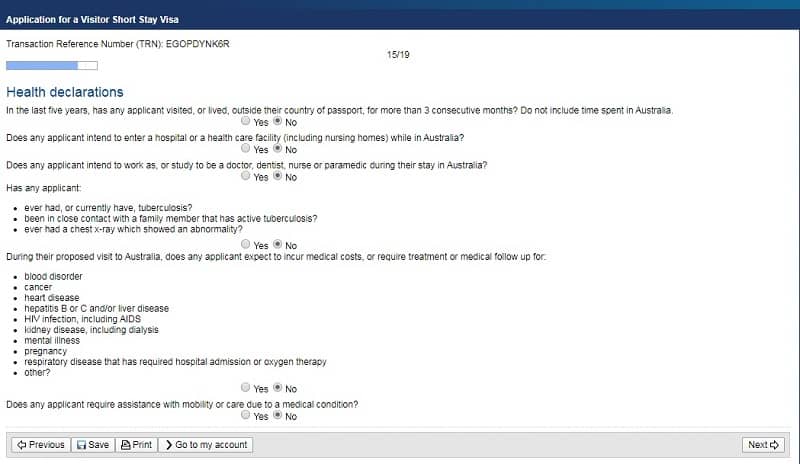
Specifically, you will undergo the following tests if you fall in any of the following situations:
An email will be sent to you by the Department of Home Affairs instructing you to arrange for a medical examination within the specified period.
The email will contain a letter specifying the type of examination you need to undertake and a HAP ID. You will then need to bring this letter to any of the following accredited panel physicians:
- Nationwide Health Systems AUX Inc. with offices in Makati, Davao, Cebu, and Baguio
- St. Luke’s Medical Extension Clinic – Global City in Taguig
Address, clinic hours, telephone numbers and email addresses of these accredited panel physicians are here .
Check out this link to have a full understanding of the health requirements in your visa application.
Please note that your visa application will only be processed once you complete the medical examination requirements.
Go back to the main article: How to Apply for an Australian Tourist Visa: A Complete Guide for Filipino Tourists
Copyright Notice
All materials contained on this site are protected by the Republic of the Philippines copyright law and may not be reproduced, distributed, transmitted, displayed, published, or broadcast without the prior written permission of filipiknow.net or in the case of third party materials, the owner of that content. You may not alter or remove any trademark, copyright, or other notice from copies of the content. Be warned that we have already reported and helped terminate several websites and YouTube channels for blatantly stealing our content. If you wish to use filipiknow.net content for commercial purposes, such as for content syndication, etc., please contact us at legal(at)filipiknow(dot)net
What is the health requirement for Australian visa applicants and how could it affect you?
The controversial requirement is often the one thing standing between migrant families and permanent residency in australia., how does it work.

Visa applicants with a disability facing discrimination, 10 years after being promised change

More than 15 families a year face deportation because of one relative's disabilities

Who does it apply to?

Hearing-impaired Bhutanese teen faces 'world of isolation' as deportation from Australia looms

What is a health waiver?

"It's completely inappropriate": Australian Immigration deporting people with disabilities

Share this with family and friends
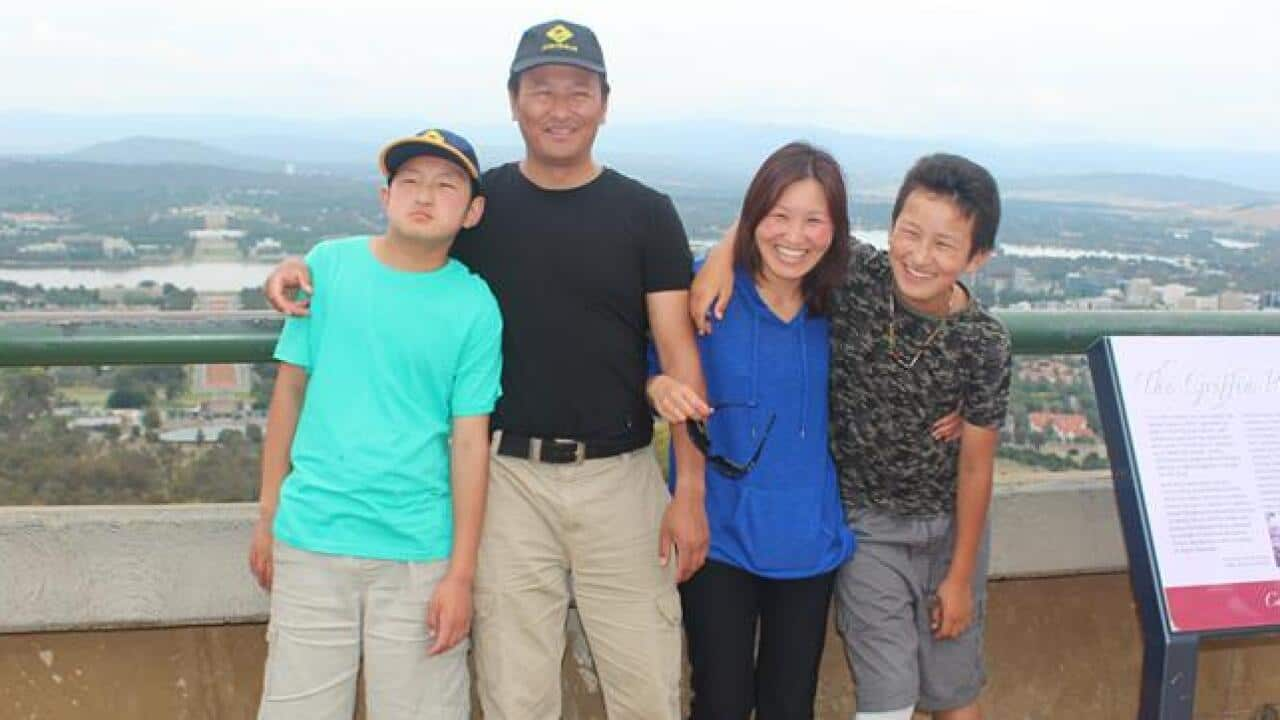
Recommended for you

Nariman was forced to give up her career dream because of this 'discriminatory' requirement
Student finances
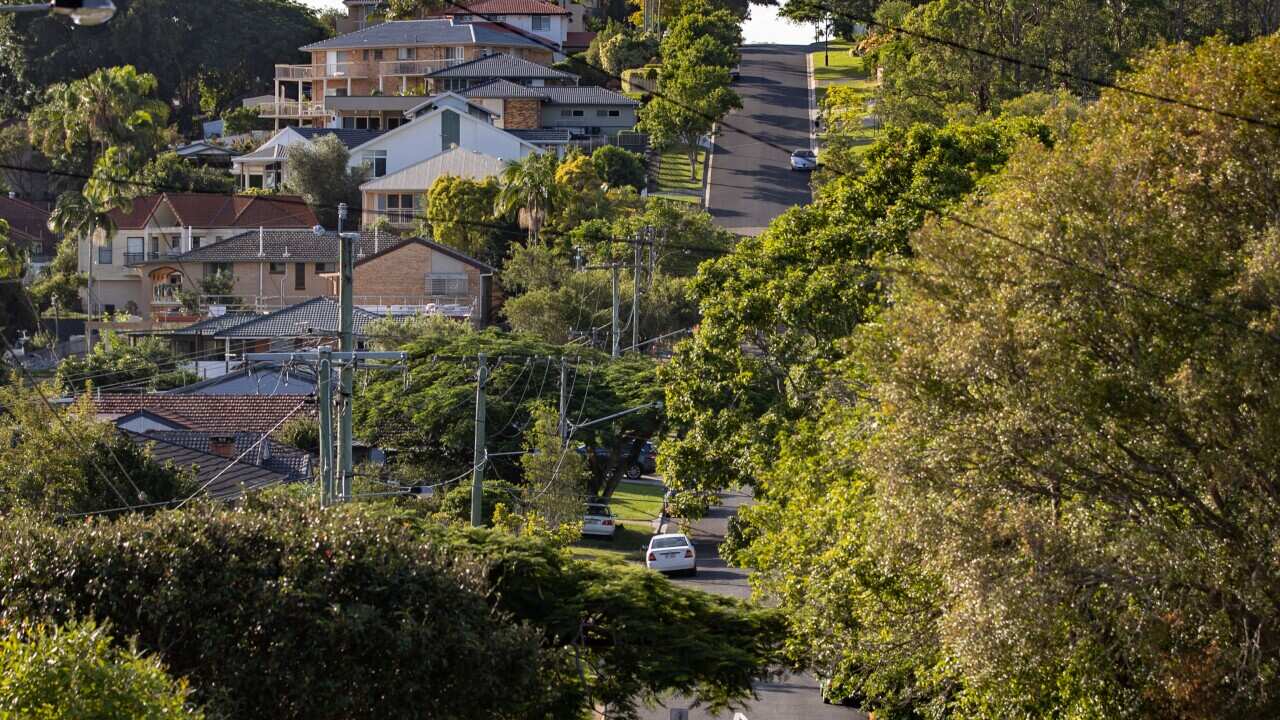
Boomtown: Australia's 'rising star' suburbs and towns where prices could surge
Housing Affordability

Points test system for skilled migrants set for overhaul

Almost a third of Aussies were born overseas. These are the countries they're coming from
Migrating to Australia

Wages on the rise: How does your income compare to others?
Personal income
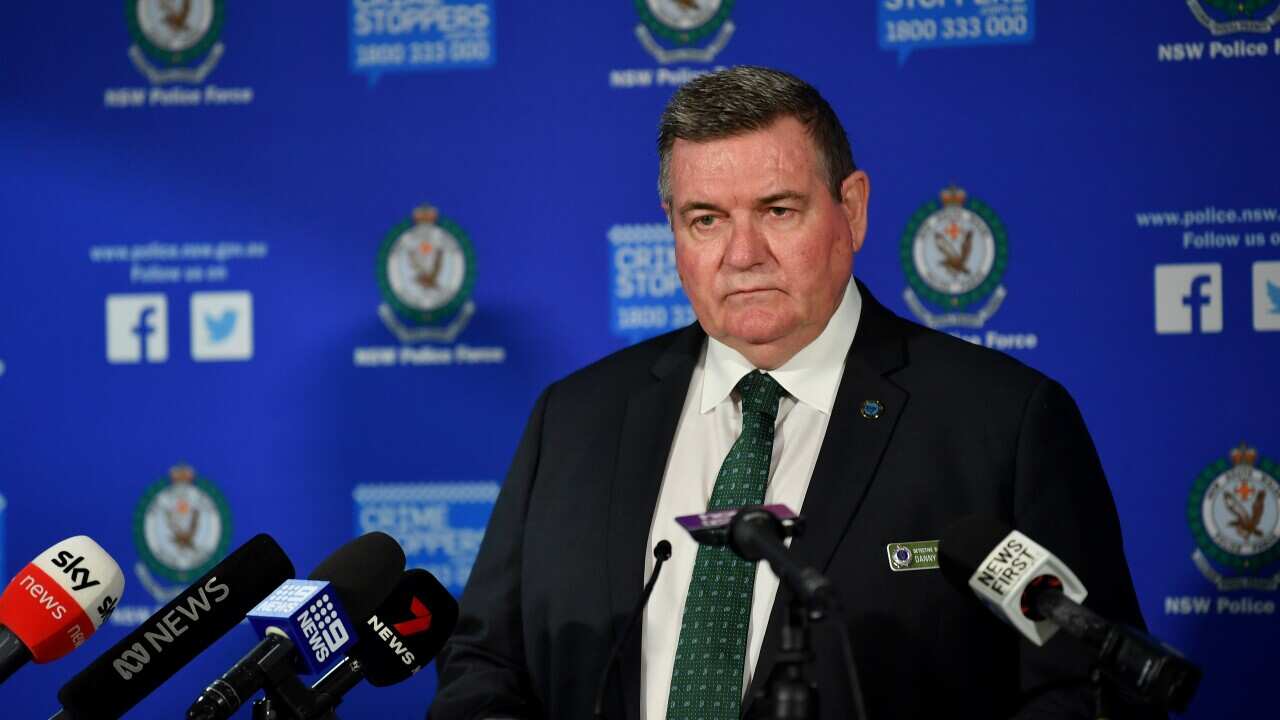
Teen stabbed 10-year-old sister 'completely out of the blue', police say

How Australians can view the rare 'Devil Comet' before it disappears for 70 years

Anzac Day trading hours 2024: What's open and when
Get sbs news daily and direct to your inbox, sign up now for the latest news from australia and around the world direct to your inbox..
Morning (Mon–Fri)
Afternoon (Mon–Fri)
By subscribing, you agree to SBS’s terms of service and privacy policy including receiving email updates from SBS.
SBS World News
How do I find the right visa to travel to Australia?
Explore visas on the Department of Home Affairs website for Australian visa options that might suit your needs.
Can I apply for an Electronic Travel Authority (ETA) subclass 601?
There are specified passports that are eligible to apply for an ETA . Individuals who hold a non-citizen passport, certificate of identity or other travel document cannot apply for an ETA.
I tried to apply for an ETA and received a message saying that the application cannot be assessed. What do I do now?
This means that the application is one of a small number of applications that cannot be approved over the internet due to checks required by the Australian Government. Do not submit the application again. If you do, the result will be the same and your credit card will be charged again.
If you have had any criminal convictions in any country, you should obtain police checks and other relevant character documents then apply for a Visitor visa (subclass 600) , rather than an ETA to be assessed against the character requirements . If you arrive on an ETA with criminal convictions, you could be refused entry to Australia. Additionally, if you do not meet the health requirements you should apply for a Visitor visa (subclass 600) , rather than an ETA. To start an online application you will need to create an ImmiAccount or login to your existing account.
If you do not have any health or character concerns and were unsuccessful in obtaining an ETA online (including passport holders from Taiwan) please contact the Global Service Centre at +61 2 6196 0196 to progress your application. You will need to provide your ETA reference number and passport details.
How long will my application take to process?
Global visa processing times for all visa and citizenship applications are posted on the Department of Home Affairs website and updated monthly, providing an indicative timeframe for processing applications. Processing times are impacted each month by changes in application volumes, seasonal peaks, complex cases, and incomplete applications.
How can I check the status of my application or visa?
Log into your ImmiAccount to check the progress of an online application. You can also import a paper application into ImmiAccount to view the progress.
Visa Entitlement Verification Online (VEVO) is a free online service that gives visa holders, employers and other registered organisations access to visa entitlements and status information 24 hours a day.
Can I get my visa application expedited?
The department does not offer an expedited service. All visa applications are assessed based on their individual merits and against set legal requirements. It is important that you submit a complete application to avoid any delays with the application.
We strongly recommend that you should not book flights or make travel commitments until you have a visa to travel to Australia. The department will not be liable for any financial loss incurred by applicants whose visa application was finalised later than expected or where an application is unsuccessful. If applicants travel to the airport without a visa to enter Australia they do so at their own risk and expense.
Please note that the embassy is unable to answer visa and citizenship enquiries.
What travel is allowed on an APEC Business Travel Card (ABTC) visa?
A Visitor (Business) subclass 600 visa granted in relation to an ABTC allows travel for short-stay business purposes as well as short non-business travel, such as to have a holiday or visit family and friends. Please see the Department of Home Affairs website for further information on ABTC travel
I would like to work in Australia, what do I need to do?
Explore work visas options on the Department of Home Affairs website.
What if I want to study in Australia?
Explore student visa options on the Department of Home Affairs website.
What if I want to migrate to Australia?
Explore visa options on the Department of Home Affairs website for options to become a permanent resident or join a partner or family in Australia.
I have an occupation or skill that may be needed in Australia, how do I find out what is accepted?
Information on skilled work in Australia, including the skilled occupation list, can be found on the Department of Home Affairs website .
I am a returning resident, what are my visa options?
There are visa options available for current or former Australian permanent residents, or former Australian citizens to re-enter Australia.

What character requirements am I required to meet to enter Australia?
Everyone who wishes to enter Australia must be assessed against the character requirements .
What health requirements am I required to meet to enter Australia?
Everyone who wishes to enter Australia must meet the health requirement .
Are there migration agents who can assist with my application?
Information on finding and using a registered migration agent can be found on the Department of Home Affairs website.
What travel document do I need to enter Australia?
Everyone entering Australia must present a valid and approved travel document as evidence of their identity and nationality. Australian visas are electronically attached to the valid passport used on the visa application.
Do Australian citizens have to enter Australia on an Australian passport?
Australian citizens should hold an Australian passport to enter and leave Australia, even when using a foreign passport overseas. The Australian Passport Office provides information on how to apply for an Australian passport .
Can I travel on a passport with a different name to my airline ticket?
You should contact your airline to see if they will carry you. If so, you should then contact the immigration department of all countries to which you are travelling (except Australia) to ensure you will be able to fulfil their immigration/customs requirements.
How can I update my passport details with the Department?
You can update your details online through your ImmiAccount.
How can I request my international movement records?
If you require international movement records for Australia please complete Form 1359 Request for international movement records and email to the address provided on the form.
If you require records prior to 1981 please contact the National Archives of Australia www.naa.gov.au
Information on Australian visas and citizenship , as well as ways to contact us , can be found on the Department of Home Affairs website .
Please note that the Embassy and Consulates are unable to answer visa and citizenship enquiries.
Australian Government Department of Health and Aged Care
COVID-19 and travel
Find out about travel requirements and steps you can take to stay safe.
Domestic travel within Australia
Domestic travel requirements are determined by state and territory governments. Check the websites of local health departments for information about travel to:
- Australian Capital Territory
- New South Wales
- Northern Territory
- South Australia
- Western Australia .
Travelling overseas
The Australian Government does not currently have any COVID-19 requirements in place for travellers entering and departing Australia.
COVID-19 however continues to pose a health risk in Australia and overseas. We strongly encourage wearing masks and being vaccinated while travelling internationally. You should practice good cough and hand hygiene, and physically distance from others where possible.
Some countries, airlines and vessel operators may have COVID-19 travel requirements in place. Check the requirements of any:
- countries you are travelling to, or transiting through
- airlines or vessel operators.
- Smartraveller website
- Australian Government – international travel information .
Travel insurance
Travel insurance is important if you become sick with COVID-19 overseas. Make sure your insurance includes:
- transit destinations
- inclusions for COVID-19
- other add-ons like cruise specific insurance.
Some destinations also require travellers to hold travel insurance as a condition of entry.
Cruise travel
Check with your cruise provider or travel agent for up-to-date travel requirements for your ship and destination/s. You can also contact the relevant state or territory government to find out if any requirements apply for your destination.
Outbreaks onboard a cruise
Cruise ships carry a higher risk for spreading disease compared to other types of travel. COVID-19, influenza, and other infectious diseases spread easily between people living and socialising in close quarters.
If an outbreak of COVID-19 occurs on your cruise, you may need to:
- quarantine on the ship
- disembark and follow the local rules in the state or territory or country you are in.
Before you travel, check the Smartraveller advice on cruises . Contact your travel agent or cruise operator for specific information on their COVID-19 safety protocols.
- Coronavirus (COVID-19)
Is there anything wrong with this page?
Help us improve health.gov.au
If you would like a response please use the enquiries form instead.

Individual Immigration Services
Immigration resources, migration matters, stay abreast of the latest in australian immigration & visa news by subscribing to our monthly newsletter., navigating changes in temporary visa health requirements in australia.
As of November 1, 2023, applicants for further temporary visas in Australia face a pivotal shift in policy. Short-term measures that once exempted individuals from health examinations during the application process have ceased, signifying a significant adjustment in the visa application landscape.
This change stems from the Department of Home Affairs’ proactive response to the challenges posed by the ongoing global pandemic. In 2022, the department implemented a series of regulatory and policy changes to address the adverse impacts of Covid-19. One such measure included temporary concessions for both visa holders and applicants concerning health examinations for temporary visa applications. The objective was to streamline the application process for temporary visas.
Previously, temporary visa applicants were not obliged to undergo medical examinations or chest x-rays to fulfill the health requirement. This waiver is applied to eligible temporary visa applications lodged in Australia for specific visa subclasses. These concessions, initially deemed temporary in nature, have officially ceased as of November 1, 2023.
Applicants, along with their accompanying family members, are now potentially required to undergo health examinations as part of the visa application process. The specific examinations necessary depend on various factors, such as the type of visa sought, the duration of the intended stay in Australia, the applicant’s country of origin, planned activities in Australia, the presence of any medical conditions, and other unique circumstances relevant to the applicant or their family members.
It’s crucial to note that individuals who have undergone health examinations in the previous 12 months may be exempt from the requirement. To determine whether you need to undergo health examinations, you can conveniently check your Immi Account. For those who applied via paper forms, a processing officer will get in touch to provide guidance on the next steps.
These changes mark a significant development in Australia’s visa application process, underlining the importance of staying informed and proactive when it comes to immigration policies. As the landscape continues to evolve, applicants are encouraged to regularly check official sources, such as the Department of Home Affairs website, for the latest updates and guidance.
For more detailed information and personalised guidance, please visit the Home Affairs web page .
As you embark on your visa application journey, being well-informed is your best ally in navigating these changes effectively.
Need Assistance?
Share this article
Content in this publication is for informational purposes only and not intended as legal advice, nor should it be relied on as such. Australian immigration law is complex and its policies and visa eligibility criteria are changing regularly. For additional and current information on the issues discussed, please book a consultation with one of our immigration lawyers.
Recent articles

Australia is Reviewing the Core Skills Occupations List (CSOL)
The Migration Strategy outlined in December 2023 sets the course for reforming Australia’s migration system. A key aspect of this strategy is the creation of

Business Visa to Permanent Residency – A Guide for Australian Businesses
Australia is renowned for its vibrant economy, cultural diversity, and high quality of life, making it an attractive destination for migrants seeking new opportunities. For

Visas for skilled workers working in oil and gas projects offshore
Australia is a resource rich country, being a leading exporter of LNG extracted from a range of significant offshore and onshore gas fields expanding across
Subscribe to Roam Migration Law
Australian immigration & visa news
Are you a business looking to sponsor an overseas worker? Book a FREE consultation with an immigration lawyer.
Blog – Australian ETA and Interesting facts
Blog about Australia. Read interesting articles about Australian visa as well as other interesting facts about this beautiful country.
Australian Tourist Visa Checklist
January 25, 2023
About Visa to Australia

c505218304b50c59c3659f6dda43bae7-others-0-->
The Australian Tourist Visa , also known as the Visitor Visa (Subclass 600) , is an entry permit issued for foreign citizens who wish to visit Australia for tourism purposes. This visa type allows eligible travelers to attend a sightseeing tour, go on a cruise, participate in cultural festivals, or simply meet with family and friends.
Usually, the Australian Tourist Visa is issued for a period of 3 months. However, in certain circumstances, the permit may remain valid for up to 12 months. Before proceeding with the visa application, it is recommended to make sure you meet all the eligibility criteria.
Apply online for ETA Australia CLICK TO APPLY ONLINE
Documents required for the Australian Tourist Visa
There are a few basic documents that are required while applying for the Australian Tourist Visa (Subclass 600). The criteria include preparing relevant documents verifying your identity and proving your wish to be a genuine visitor in Australia.
Identity documents
The identity documents are necessary to verify your identity while applying for an Australian visa . The most important document is your valid passport which contains all the relevant information, including personal details, passport number, issue date, and expiry date. The travel permit also contains your biometric photo.
Required documents:
-valid passport
-national identity card (if applicable)
-proof of name change (if applicable)
-marriage certificate
-divorce certificate
-name change documents from the relevant authority
Genuine visitor documents
The genuine visitor documents serve as proof of planning only a temporary visit to Australia with no intention of requesting permanent residency. They describe your reasons for traveling but also could be treated as a statement that you will do well abroad.
-description of the purpose behind the travel
-declaration of sufficient funds (bank statements, tax records)
-declaration to return to your home country (from the relevant authority)
-proof of having plans to return to your home country
-proof of pursuing education in your home country
-proof of continuing employment in your home country
-proof of having immediate family members in your home country
-proof of being an owner of major assets in your home country
-letter of invitation (from an Australian friend or relative)
-describing the relationship
-stating the purpose of your visit
-stating the length of your visit
-declaring a will to pay for your visit
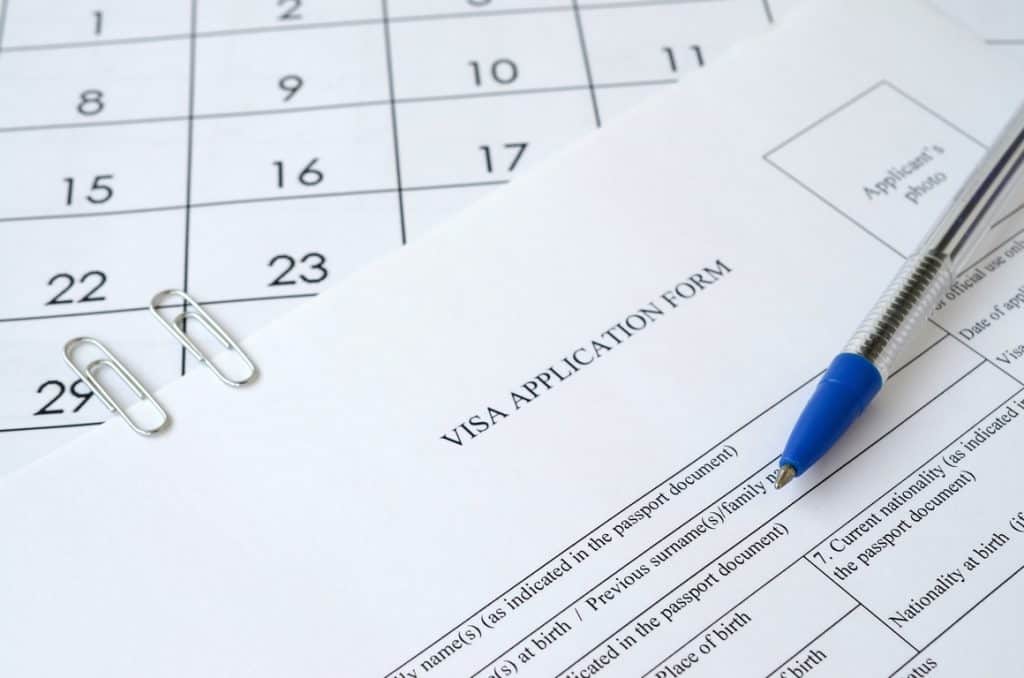
Character requirements for the Australian Tourist Visa
It is essential that you are considered of good character if you wish to visit Australia. Details on the character requirements are described in the Migration Act 1958, section 501.
During the visa application process, you may be asked to provide a police certificate, a military certificate, or a letter of good conduct issued by your employer. Sometimes it is also essential to complete the character assessment and character statutory declaration.
Character assessment
You may not meet the character requirements for the Australian Tourist Visa if you:
-have a criminal record
-have been convicted of serious crime
-have been convicted of escaping from immigration detention
-have been a member of a group or organization involved in criminal conduct
-are suspected of engaging in criminal conduct in Australia
-are suspected of inciting discord in the Australian community
-are suspected to be a threat to the Australian community
Health requirements for the Australian Tourist Visa
The general health requirements for the Australian Tourist Visa are:
-to be in good health overall
-to have health insurance covered
Medical examination
You may be asked to undergo additional health examinations . The need to schedule a doctor visit depends on numerous factors, some of which are the length of your journey to Australia or the level of tuberculosis risk in your country.
However, if you have been to a medical examination during the last 12 months before your planned arrival in Australia , you may be exempt from this visa requirement.
It is essential to undergo a medical examination if the travel from your home country to Australia could be considered a threat to public health, with a high risk of polio or EVD.
Requirements concerning the medical examination
The applicants for the Tourist Visa may be required to undergo specific medical examinations (including chest x-ray) if:
-they are pregnant
-they are aged over 75 years
-they had contact with tuberculosis
-they expect to require medical treatment in Australia
Requirements concerning diseases and chronic conditions
To meet the health requirements for the Tourist Visa, you must be free from any disease or chronic condition that:
-may be a significant healthcare service cost to the Australian community
-may be a significant community service cost to the Australian community
-may limit the access of Australian residents to healthcare and community services
Translation of the documents
It is essential that all the necessary documents are originally issued in English or translated to English by a sworn translator. Documents in other languages will not be accepted.
Translators in Australia must be accredited by the National Accreditation Authority for Translators and Interpreters. However, translators outside Australia do not have to be accredited
Requirements for high-risk countries
Citizens of countries that are considered high-risk must meet some additional requirements to be allowed entry to Australia on the Tourist Visa.
Financial details
-bank statements (personal and business) showing consistent savings history
-documents proving good financial status
-documents showing possessed funds or assets
-documents showing taxation for the last 3 years
Moreover, if your friend or relative in Australia will be paying for your visit, you should obtain a Statutory Declaration stating the evidence of their financial capacity to do so.
Employment details
-letter from the employer stating your position and salary, describing the length of employment, and confirming the contact details of the person providing the letter (for employed travelers)
-evidence of business registration (for self-employed travelers)
-evidence of retirement (for retired travelers)
International students who wish to visit Australia on a Tourist Visa should provide evidence of enrolment, such as an official letter from an educational institute.
Related Articles:
Recent posts.
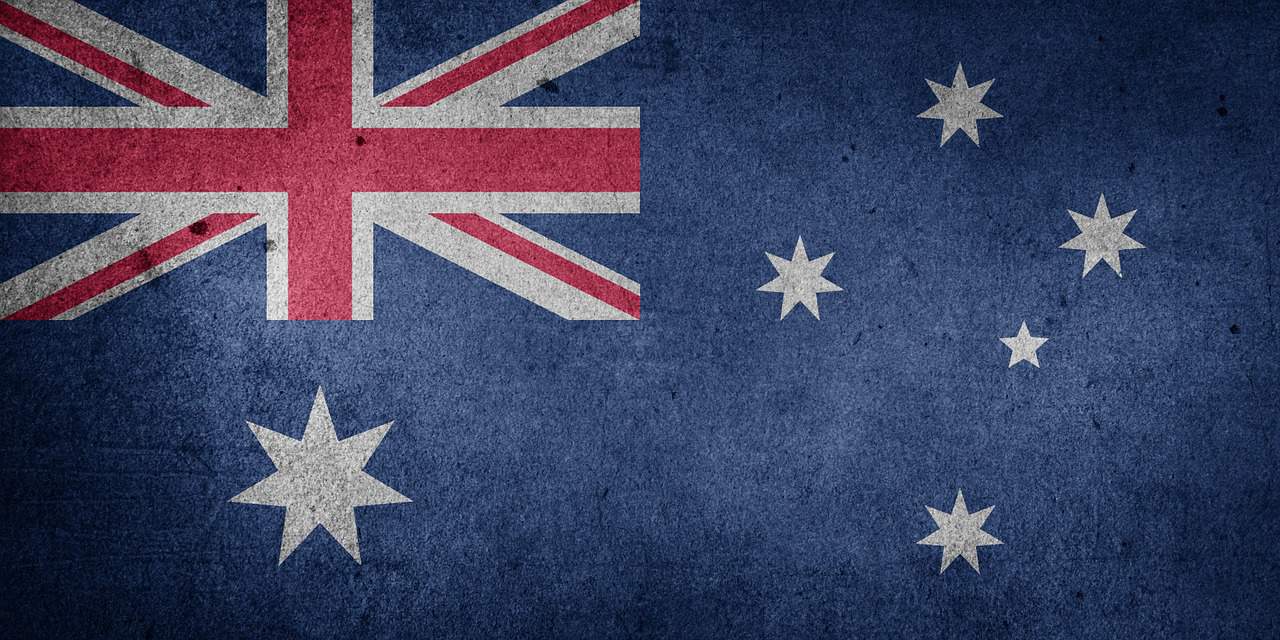
November 24, 2023
Subclass 186 Visa – Requirements and Processing Time
The Australian Subclass 186 Visa, also known as the Employer Nomination Scheme (ENS), is a visa granting permanent residency and allowing skilled workers to live and …

Sibling Visa Australia – Processing Time and Requirements
November 23, 2023
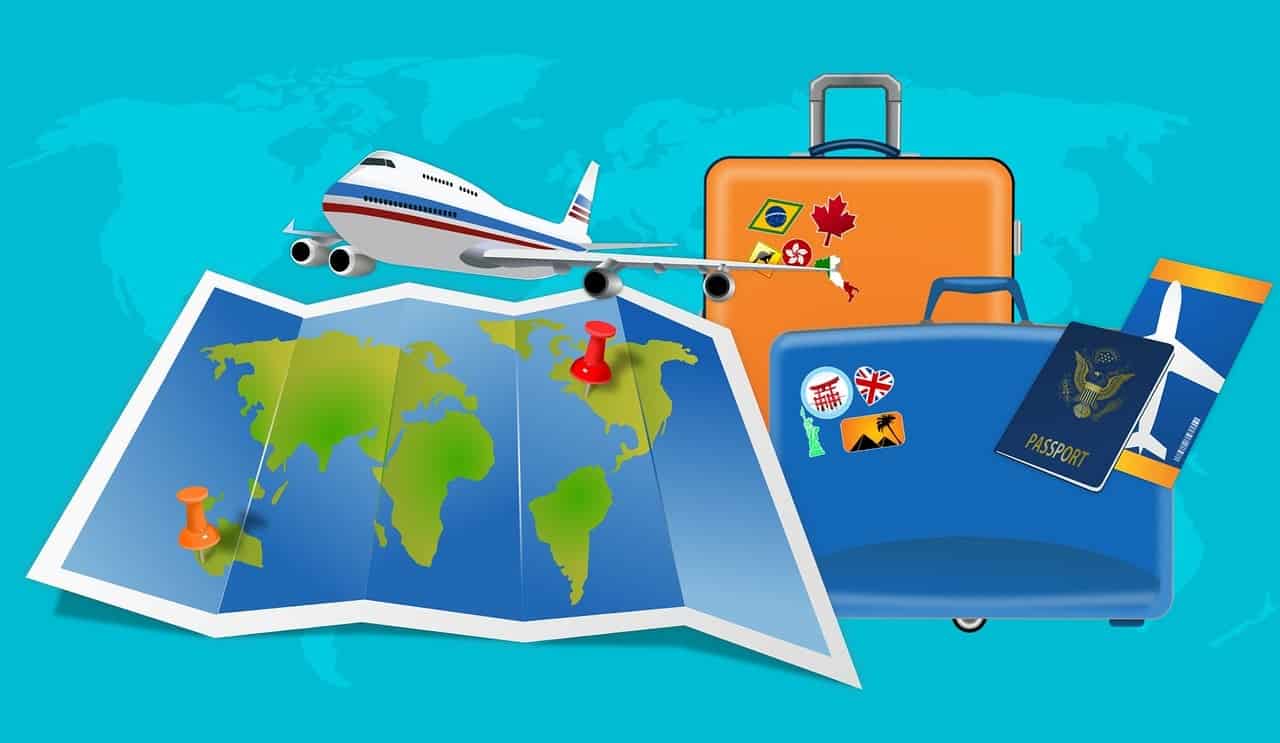
Difference Between 189 and 190 Visa
November 21, 2023

189 Visa Requirements and Processing Time
Travel tips.
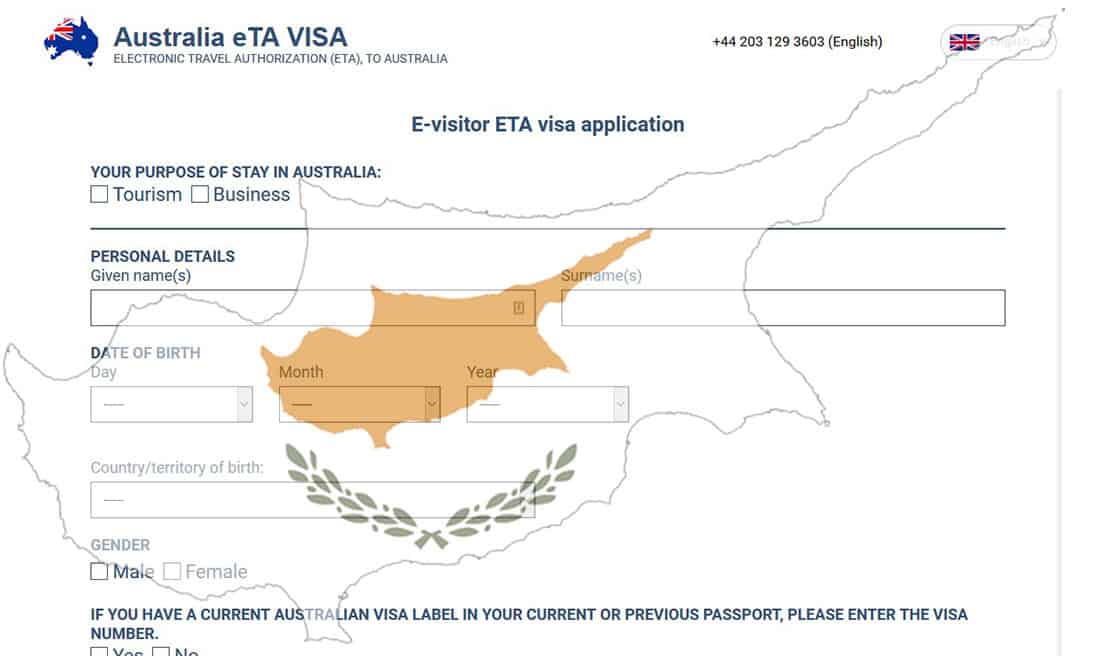
Australian Visa for Cypriot Citizens – All You Have To Know
November 9, 2018

Australian Visa for Croatian citizens – Application
November 8, 2018
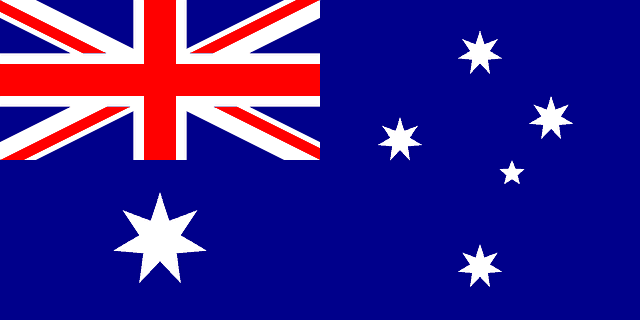
La bandera de Australia – Información interesante
September 4, 2018
Apply for eTA Australia:
- Step1: Apply on-line
- Step2: Make an online payment
- Step3: Check your e-mail address
Update April 12, 2024
Information for u.s. citizens in the middle east.
- Travel Advisories |
- Contact Us |
- MyTravelGov |
Find U.S. Embassies & Consulates
Travel.state.gov, congressional liaison, special issuance agency, u.s. passports, international travel, intercountry adoption, international parental child abduction, records and authentications, popular links, travel advisories, mytravelgov, stay connected, legal resources, legal information, info for u.s. law enforcement, replace or certify documents.
Before You Go
Learn About Your Destination
While Abroad
Emergencies
Share this page:
Travel Advisory September 8, 2023
Australia - level 1: exercise normal precautions.
Reissued with removal of major event information.
Exercise normal precautions in Australia.
Read the country information page for additional information on travel to Australia.
If you decide to travel to Australia:
- Enroll in the Smart Traveler Enrollment Program ( STEP ) to receive Alerts and make it easier to locate you in an emergency.
- Follow the Department of State on Facebook and Twitter .
- Review the Country Security Report for Australia.
- Visit the CDC page for the latest Travel Health Information related to your travel.
- Prepare a contingency plan for emergency situations. Review the Traveler’s Checklist .
Embassy Messages
View Alerts and Messages Archive
Quick Facts
Must be valid at time of entry
One page required for entry stamp
Amounts over AUD 10,000, or equivalent, must be declared
Embassies and Consulates
U.s. consulate general sydney.
Suite 2, 50 Miller Street North Sydney, NSW 2060 Australia Telephone: +(61) (2) 2 8219-2100 Emergency After-Hours Telephone: +(61) (2) 4422-2201 Email: [email protected]
U.S. Embassy Canberra (The Embassy does not provide consular services.) Moonah Place Yarralumla, ACT 2600 Australia Telephone: +(61) (2) 6214-5600 Emergency After-Hours Telephone: +(61) (2) 411-424-608 Fax: +(61) (2) 6214-5970
U.S. Consulate General Melbourne 553 St. Kilda Road Melbourne, VIC 3004 Australia Telephone: +(61) (3) 9526-5900 Emergency After-Hours Telephone: +(61) (3) 9389-3601 Fax: +(61) (3) 9526-5968 Email: [email protected]
U.S. Consulate General Perth 4th Floor 16 St. George's Terrace Perth, WA 6000 Australia Telephone: +(61) (8) 6144-5100 Emergency After-Hours Telephone: +(61) (8) 9476-0081 Fax: +(61) (8) 9325-5914 Email: [email protected]
Destination Description
Learn about the U.S. relationship to countries around the world.
Entry, Exit and Visa Requirements
You must have a valid U.S. passport and a visa or an approved Electronic Travel Authority (ETA) to enter Australia. Most U.S. passport holders traveling to Australia for tourism or business purposes for less than 90 days can obtain an ETA. The ETA is an electronic label-free visa and can be obtained at the ETA website for a small service fee. Airlines and many travel agents in the United States are also able to apply for ETAs on behalf of travelers.
If you overstay your ETA or any other visa, even for short periods, you may be subject to exclusion, detention, and removal by the Australian Department of Home Affairs.
If you are travelling on a valid U.S. ePassport (a passport that contains an electronic chip) and are 16 years of age or older, you are eligible to use Australia’s automated border processing system, SmartGate, upon arrival in Australia (SmartGate kiosks are available only at participating airports). There is no additional enrollment process or fee to use SmartGate. Visit the SmartGate website for more information and for a list of participating airports in Australia.
Visit the Embassy of Australia website for the most current visa information.
HIV/AIDS restrictions. Some HIV/AIDS entry restrictions exist for visitors and foreigners seeking permanent residence in Australia. Depending on the type of visa you apply for, the length of your stay, and your intended activities in Australia, you may be required to undergo a medical examination before the Australian Department of Home Affairs will issue you a visa.
If you are in the application process, and are found to be HIV positive, a decision on the application will be considered on the same grounds as any other pre-existing medical condition (such as tuberculosis or cancer), with the focus on the cost to Australia’s health care and community services.
Additional information about Australian immigration health requirements can be found here.
Please verify this information with the Embassy of Australia in Washington D.C. before you travel.
Find information on dual nationality , prevention of international child abduction and customs regulations on our websites.
Safety and Security
Terrorism: Terrorists have targeted, and could continue to target, Australia.
- Australia has an alert system for possible terrorist attacks. The threat levels range from “not expected” to “certain.” The Australian National Security website has up-to-date information regarding the current terrorism threat level. You may also contact the Australian National Security Hotline at 61-1-800-123-400.
- U.S. citizens in Australia should remain vigilant toward their personal security and exercise caution.
- Australian law protects the right of individuals and groups to engage in peaceful protest and to publicly express their views. Demonstrations and political rallies are generally approved by local authorities and well publicized. However, please be cautious of any possible confrontation that could escalate into violence. You should attempt to avoid the areas of demonstrations and be careful within the vicinity of any demonstrations. You should stay current with media coverage of local events and always be aware of your surroundings.
- You should be aware that robberies, burglaries, assault, and auto theft are common in Australia’s larger cities.
- Foreign visitors in popular tourist areas are targets for pickpockets, purse-snatchers, and petty thieves. Most petty crime can be avoided if basic security precautions are taken.
- Be careful when visiting bars or clubs in the entertainment areas of major cities, as “bar brawls” and other assaults sometimes occur. You should watch out for drink spiking when consuming alcohol with unfamiliar people.
See the Department of State and the FBI pages for information on scams.
Victims of Crime:
- Report crimes to the local police at 000 and contact the U.S. Consulate in your district.
- The local authorities are responsible for investigating and prosecuting crimes.
- See our webpage on help for U.S. victims of crime overseas .
- Assist you in reporting a crime to the police.
- Help you find appropriate medical care.
- Contact relatives or friends with your written consent.
- Explain the local criminal justice process in general terms.
- Provide a list of local attorneys.
- Provide information on victim’s compensation programs in the U.S.
- Provide information about Australian Victim Assistance programs.
- Provide an emergency loan for repatriation to the United States and/or limited medical support in cases of destitution.
- Help you find accommodation and arrange flights home.
- Replace a stolen or lost passport.
Domestic Violence: U.S. citizen victims of domestic violence may contact the U.S. consulate in your district for assistance.
Tourism: The tourism industry is generally regulated, and rules and safety inspections are regularly enforced. Hazardous areas/activities are identified with appropriate signage, and professional staff is typically on hand in support of organized activities. In the event of an injury, appropriate medical treatment is widely available throughout the country. Outside of a major metropolitan center, it may take more time for first responders and medical professionals to stabilize a patient and provide life-saving assistance. U.S. citizens are encouraged to purchase medical evacuation insurance .
Local Laws & Special Circumstances
Criminal Penalties: You are subject to local laws. If you violate local laws, even unknowingly, you may be expelled, arrested, imprisoned or deported.
- It is illegal to take pictures of certain buildings, such as inside certain areas of Australian airports, near prisons, and at military bases.
- Furthermore, some laws are also prosecutable in the United States, regardless of local law. For examples, see our website on crimes against minors abroad and the Department of Justice website.
Alcohol and Drugs:
- Penalties for possession, use, or trafficking of drugs are strict. Convicted offenders can expect lengthy sentences and fines. Please see Australia’s Department of Health webpage for further information.
- Driving under the influence of alcohol can result in jail time.
- Random breath testing of a driver's blood alcohol level is a common occurrence.
Arrest Notification: If you are arrested or detained, ask police or prison officials to notify the U.S. Embassy immediately. See our webpage for further information.
Potential Health Screening: Australian authorities have broad powers to prevent the entry of diseases and other materials into Australia that might pose a threat to its welfare. In the event of a public health emergency involving a communicable disease, passengers arriving in Australia may be subject to strict health screening measures, including testing, monitoring, and assessment for possible quarantine.
Customs: Australian customs authorities enforce very strict regulations concerning the importation from all countries of items such as agricultural goods, including plants and food products, and wood products, as well as very strict quarantine standards for animals and pets. Can you bring it in?
Contact the Embassy of Australia in Washington, D.C., or one of Australia's consulates in the United States for specific information regarding customs requirements, and visit the Australian Government’s Department of Agriculture website for additional information.
Natural Disasters:
Australia experiences a range of natural disasters, including bushfires, floods, and severe storms. These events are difficult to predict and can result in loss of life. You should be aware of conditions around you and monitor local weather and safety reports so you can take appropriate action when needed.
See our webpage for information on storm preparedness and response.
Safety Concerns:
Outdoor Recreation/Adventure
- Be aware that Australian fauna can be dangerous. From jellyfish to crocodiles, sharks, poisonous insects, and snakes, the continent and its waters host wildlife that merit awe and respect in equal doses.
- Visit the Wet Tropics Management Authority visitor information guide for information on Australian wildlife and marine life.
- Take important safety precautions when swimming, such as swimming only between the flags where a lifeguard is present, and never swimming alone.
- Further information on beach safety can be found on the Surf Life Saving website.
Follow recommended precautions when snorkeling and scuba diving and never dive alone. Over the past few years, there have been numerous deaths related to snorkeling and scuba diving incidents.
Faith-Based Travelers : See the following webpages for details:
- Faith-Based Travel Information
- International Religious Freedom Report – see country reports
- Human Rights Report – see country reports
- Hajj Fact Sheet for Travelers
- Best Practices for Volunteering Abroad
LGBTI Travelers: There are no legal restrictions on same-sex sexual relations or the organization of LGBTI events in Australia. Australian federal law prohibits discrimination based on sexual orientation.
As of December 9, 2017 Australia defines marriage as “the union between two people.” Australia grants temporary and permanent visas to same-sex partners of Australian citizens.
See our LGBTI Travel Information page and section 6 of our Human Rights report for further details.
Travelers Who Require Accessibility Assistance
- Australia enforces laws prohibiting discrimination against access to premises, facilities, and accommodation.
- Many of the downtown areas of Australian cities were built in the 1800s. These areas often have narrow sidewalks crowded with pedestrians and tourists.
- Most public transit, parking, streets, and buildings are accessible for disabled travelers.
- Tourist spots at the beach or in the Australian outback can have varying degrees of accessibility.
- Many accommodations and venues provide accessibility information on their websites.
Students: See our Students Abroad page and FBI travel tips .
Women Travelers: See our travel tips for Women Travelers .
For emergency services in Australia, dial 000.
Ambulance services are widely available.
We do not pay medical bills. Be aware that U.S. Medicare/Medicaid does not apply overseas. Most hospitals and doctors overseas do not accept U.S. health insurance.
- Excellent medical care is available in Australia.
- Doctors and hospitals often expect immediate cash payment for health services.
- Serious medical problems requiring hospitalization and/or medical evacuation to the United States can cost hundreds of thousands of dollars.
Medical Insurance: Make sure your health insurance plan provides coverage overseas. Most care providers overseas only accept cash payments. See our webpage for more information on overseas insurance coverage. Visit the U.S. Centers for Disease Control and Prevention for more information on type of insurance you should consider before you travel overseas.
Prescriptions:
- If traveling with prescription medication, check with the government of Australia to ensure the medication is legal in Australia .
- Always, carry your prescription medication in original packaging with your doctor’s prescription
Vaccinations: Be up-to-date on all vaccinations recommended by the U.S. Centers for Disease Control and Prevention.
Further health information:
- World Health Organization
- U.S. Centers for Disease Control and Prevention (CDC)
Air Quality: Visit AirNow Department of State for information on air quality at U.S. Embassies and Consulates.
The U.S. Embassy maintains a list of hospitals and a link to the Australian National Health Services Directory at Medical Assistance - U.S. Embassy & Consulates in Australia (usembassy.gov) . We do not endorse or recommend any specific medical provider or clinic.
Medical Tourism and Elective Surgery
- Visit the U.S. Centers for Disease Control and Prevention website for information on Medical Tourism, the risks of medical tourism, and what you can do to prepare before traveling to Australia.
Pharmaceuticals:
- U.S. Customs and Border Protection and the Food and Drug Administration are responsible for rules governing the transport of medication back to the United States. Medication purchased abroad must meet their requirements to be legally brought back into the United States. Medication should be for personal use and must be approved for usage in the United States. Please visit the U.S. Customs and Border Protection and the Food and Drug Administration websites for more information.
Adventure Travel
- Visit the U.S. Centers for Disease Control and Prevention website for more information about Adventure Travel .
Air Quality
Air pollution is a significant problem during certain months in Australia due to bush fires. Consider the impact seasonal bush fire season pollution may have on your health and consult your doctor before traveling.
The air quality varies considerably and changes with the season. It is typically at its worst in the bush fire season. People at the greatest risk from particle pollution exposure include:
- Infants, children, and teens
- People over 65 years of age
- People with lung disease such as asthma and chronic obstructive pulmonary disease (COPD), which includes chronic bronchitis and emphysema;
- People with heart disease or diabetes
- People who work or are active outdoors
Travel and Transportation
Road Conditions and Safety:
- Traffic operates on the left side of the road, and all vehicles use right-hand drive.
- Use caution when crossing streets and when driving.
- When crossing roads on foot, make sure you look carefully in all directions.
- Seat belt use by drivers and all passengers is mandatory, and fines apply for not wearing them.
- Motorcyclists must wear helmets.
- Speed limits and laws are rigorously enforced. Speed limits vary throughout Australia and are measured in kilometers, not miles. Be aware that speed cameras are everywhere and you will be ticketed for driving over the speed limit.
- Roads and streets are frequently narrower and less graded than U.S. highways.
- Outside major metropolitan areas, most highways are two-lane roads with significant distances between destinations.
- When driving in Australia, exercise caution while passing or merging with adjacent traffic.
- If driving in rural areas, be alert to free-roaming animals, such as kangaroos, and "road-trains" (several semi-truck trailers connected together).
- Passing road-trains is dangerous, and you should pull over to allow on-coming road-trains to pass to avoid being sideswiped.
- If you have no experience with a 4-wheel drive vehicle, you should exercise common-sense when driving in the Australian outback.
Traffic Laws:
- Each state/territory has different rules about using a foreign driver’s license and the conditions under which a visitor might have to get an international driver’s license. More information about driving rules and regulations is available by state .
- Texting or holding your phone while driving is against the law in Australia, but you can use a hands-free system to communicate while driving.
- For specific information concerning Australian driving permits, vehicle inspection, road tax, mandatory insurance, and the rental and operation of motor vehicles in Australia, visit the Australian Tourist Commission website.
Public Transportation: Australia has an extensive and safe public transportation network consisting of buses, streetcars, ferries, trains, and subways. Metered taxis and ride sharing services are also prevalent. Use common sense safety practices, such as guarding valuables and remaining aware of your surroundings, on all public transportation.
See our Road Safety page for more information.
Aviation Safety Oversight: The U.S. Federal Aviation Administration (FAA) has assessed the government of Australia’s Civil Aviation Authority as being in compliance with International Civil Aviation Organization (ICAO) aviation safety standards for oversight of Australia’s air carrier operations. Further information may be found on the FAA’s safety assessment page .
Maritime Travel: Mariners planning travel to Australia should also check for U.S. maritime advisories and alerts . Information may also be posted to the U.S. Coast Guard homeport website , and the NGA broadcast warnings website portal select “broadcast warnings”.
For additional travel information
- Enroll in the Smart Traveler Enrollment Program (STEP) to receive security messages and make it easier to locate you in an emergency.
- Call us in Washington, D.C. at 1-888-407-4747 (toll-free in the United States and Canada) or 1-202-501-4444 (from all other countries) from 8:00 a.m. to 8:00 p.m., Eastern Standard Time, Monday through Friday (except U.S. federal holidays).
- See the State Department’s travel website for the Worldwide Caution and Travel Advisories .
- Follow us on Twitter and Facebook .
- See traveling safely abroad for useful travel tips.
Review information about International Parental Child Abduction in Australia . For additional IPCA-related information, please see the International Child Abduction Prevention and Return Act ( ICAPRA ) report.
Travel Advisory Levels
Assistance for u.s. citizens, australia map, learn about your destination, enroll in step.

Subscribe to get up-to-date safety and security information and help us reach you in an emergency abroad.
Recommended Web Browsers: Microsoft Edge or Google Chrome.
Make two copies of all of your travel documents in case of emergency, and leave one with a trusted friend or relative.
Afghanistan
Antigua and Barbuda
Bonaire, Sint Eustatius, and Saba
Bosnia and Herzegovina
British Virgin Islands
Burkina Faso
Burma (Myanmar)
Cayman Islands
Central African Republic
Cote d Ivoire
Curaçao
Czech Republic
Democratic Republic of the Congo
Dominican Republic
El Salvador
Equatorial Guinea
Eswatini (Swaziland)
Falkland Islands
France (includes Monaco)
French Guiana
French Polynesia
French West Indies
Guadeloupe, Martinique, Saint Martin, and Saint Barthélemy (French West Indies)
Guinea-Bissau
Isle of Man
Israel, The West Bank and Gaza
Liechtenstein
Marshall Islands
Netherlands
New Caledonia
New Zealand
North Korea (Democratic People's Republic of Korea)
Papua New Guinea
Philippines
Republic of North Macedonia
Republic of the Congo
Saint Kitts and Nevis
Saint Lucia
Saint Vincent and the Grenadines
Sao Tome and Principe
Saudi Arabia
Sierra Leone
Sint Maarten
Solomon Islands
South Africa
South Korea
South Sudan
Switzerland
The Bahamas
Timor-Leste
Trinidad and Tobago
Turkmenistan
Turks and Caicos Islands
United Arab Emirates
United Kingdom
Vatican City (Holy See)
External Link
You are about to leave travel.state.gov for an external website that is not maintained by the U.S. Department of State.
Links to external websites are provided as a convenience and should not be construed as an endorsement by the U.S. Department of State of the views or products contained therein. If you wish to remain on travel.state.gov, click the "cancel" message.
You are about to visit:
The Complete Guide To Applying For A Travel Visa To Australia
- Last updated May 01, 2024
- Difficulty Beginner
- Category Travel

Are you planning a trip to the land Down Under? If so, you'll need to apply for a travel visa to Australia. Navigating the application process can be tricky, but fear not! This complete guide has got you covered. From the different types of visas available to the step-by-step application process, we'll walk you through everything you need to know to ensure a smooth and successful visa application. So pack your bags and get ready to explore the stunning landscapes, unique wildlife, and vibrant cities of Australia – all with the peace of mind that comes from having your travel visa sorted out. Let's dive in!
What You'll Learn
Research visa requirements for australia, gather necessary documents for the visa application, complete the online visa application form, submit the visa application and pay the required fee.

When planning a trip to Australia, one of the most important things to consider is obtaining the necessary visa. Depending on your purpose of travel and the duration of your stay, there are different types of visas that you can apply for. In this article, we will guide you on how to research the visa requirements for Australia.
- Determine the purpose of your visit: The first step is to determine the purpose of your visit to Australia. Are you traveling for tourism, business, studying, or for other reasons? Each purpose may have different visa requirements and application processes.
- Visit the official Australian government website: The official website of the Australian government, www.homeaffairs.gov.au, provides detailed information about visa options and requirements. This website is the most reliable source of information, as it is regularly updated with the latest visa regulations.
- Navigate to the visa section: Once you are on the website, navigate to the visa section. Here, you will find various categories of visas such as visitor visas, student visas, work visas, and more. Click on the category that matches your purpose of travel.
- Read the visa options: Within each visa category, you will find a list of different visa options. Take your time to read through each visa option and select the one that best suits your needs. Each visa option will have specific criteria that you need to meet.
- Check the eligibility requirements: After selecting a visa option, check the eligibility requirements. This section will outline the criteria that you need to meet in order to be eligible for the visa. Some common requirements include health and character checks, valid passport, and proof of sufficient funds.
- Research supporting documents: Once you are familiar with the eligibility requirements, research the supporting documents that you need to provide with your visa application. Common supporting documents include passport-sized photographs, passport copies, bank statements, and travel itineraries.
- Assess the processing time and visa fees: It is important to know the estimated processing time and visa fees for your chosen visa option. This will help you plan your application timeline and budget accordingly. The website will provide information on both the processing time and the visa fees.
- Read the application instructions: Before applying, carefully read the application instructions provided on the website. The instructions will guide you on how to fill out the application form correctly and what documents to submit. Make sure to follow these instructions to avoid any delays or rejections.
- Apply online or offline: Depending on the visa category, you may have the option to apply online or offline. Online applications are usually processed faster, but offline applications can be submitted at the nearest Australian embassy or consulate. Choose the method that is most convenient for you.
- Seek professional help if needed: If you find the visa requirements complex or if you require assistance with the application process, consider seeking professional help. Migration agents or visa consultants can provide personalized guidance and support throughout the application process.
Researching the visa requirements for Australia is an important step before planning your trip. By following the above steps and thoroughly reading the official government website, you will be well-prepared and equipped to apply for the correct visa for your journey to Australia.
Traveling Outside the US on a J1 Visa: What You Need to Know
You may want to see also
When applying for a travel visa to Australia, it is important to make sure you have all the necessary documents ready. Gathering these documents in advance will help streamline the application process and increase your chances of a successful visa application. Here are the essential documents you will need:
- Passport: Your passport is the most crucial document for your visa application. Ensure that your passport is valid for at least six months beyond your intended stay in Australia. It should also have at least two blank pages for visa stamps.
- Completed visa application form: Fill out the appropriate visa application form accurately and completely. The form can be downloaded from the official website of the Australian Department of Home Affairs. Take your time to double-check all the information before submitting the form.
- Visa application fee: You will need to pay the visa application fee, which can be done online or through a designated payment center. The fee can vary depending on the type of visa you are applying for and your nationality.
- Recent passport-sized photograph: Attach a recent, colored passport-sized photograph of yourself to your application form. Ensure that it meets the specified size and format requirements mentioned in the application guidelines.
- Proof of travel arrangements: Provide evidence of your travel arrangements, such as flight itineraries, hotel bookings, or tour reservations. This will help establish the purpose and duration of your trip and showcase your intent to return to your home country.
- Financial documents: Submit relevant financial documents to demonstrate your financial capacity to cover the expenses during your stay in Australia. This can include bank statements, pay slips, tax returns, or sponsorship documents, depending on your circumstances.
- Health and character requirements: Australian immigration law requires all visa applicants to meet certain health and character requirements. Depending on the type of visa you are applying for, you may need to undergo a medical examination and provide a police clearance certificate from each country you have lived in for more than 12 months in the past ten years.
- Proof of health insurance: Some visa types, such as the Visitor visa, require proof of adequate health insurance coverage during your stay in Australia. Ensure that your policy meets the requirements set by the Australian government.
- Additional supporting documents: Depending on the purpose of your visit, you may need to provide additional supporting documents. For example, if you are visiting family or friends, you may need an invitation letter from them. If you are attending a conference or seminar, include the event registration or invitation.
Remember to make copies of all your original documents before submitting them with your application. It is also advisable to keep electronic copies of all the documents for your reference. Additionally, carefully review the visa application guidelines provided by the Australian Department of Home Affairs to ensure that you have included all the necessary documents specific to your visa subclass. By gathering all the necessary documents in advance, you are well-prepared to complete your travel visa application to Australia successfully.
Which Countries Require a Visa to Travel to the Czech Republic?
To apply for a travel visa to Australia, one of the first steps is to complete the online visa application form. This form can be found on the official website of the Australian Department of Home Affairs. Follow the steps below to successfully complete the application:
- Visit the official website: Start by visiting the official website of the Australian Department of Home Affairs. This is the only reliable source of information for your visa application. Avoid third-party websites or agents that may charge additional fees.
- Select the visa type: On the website, navigate to the "Visas and Immigration" section and select the type of visa you wish to apply for. Australia offers various visas such as tourist visas, work visas, student visas, and more. Make sure you choose the correct visa category based on the purpose of your travel.
- Start the application: Once you have selected the visa category, you will find a link to start the online application form. Click on the appropriate link to begin the process.
- Create an ImmiAccount: To access and save your application form, you will need to create an ImmiAccount. This account will also allow you to track the progress of your application. Provide the required information and create a strong password for your account.
- Complete the application form: Once you have created an ImmiAccount, you can start filling out the visa application form. The form will require personal information such as your full name, contact details, nationality, and passport information. You might also need to provide details about your travel plans, including dates, places of stay, and purpose of visit.
- Answer all questions accurately: It is important to answer all the questions in the application form accurately and truthfully. Any discrepancies or false information may result in delays or even denial of the visa.
- Upload supporting documents: In addition to the application form, you may be required to upload supporting documents to support your visa application. These documents can include a copy of your passport, a recent photograph, bank statements, travel itinerary, and proof of employment or study.
- Pay the visa application fee: Once you have completed the form and uploaded the necessary documents, you will need to pay the visa application fee. The fee amount may vary depending on the type of visa you are applying for. Payment methods usually include credit cards and online banking.
- Review and submit the application: Before submitting the application, carefully review all the details to ensure accuracy. Pay close attention to spellings, dates, and other important information. Once you are satisfied, submit the application.
- Track the progress of your application: After submitting the application, you can use your ImmiAccount to track the progress of your visa application. The processing times can vary, so it's important to be patient. Once a decision is made, you will be notified through your ImmiAccount or via email.
Completing the online visa application form is an essential step in applying for a travel visa to Australia. Take your time, provide accurate information, and ensure that all supporting documents are uploaded correctly. Following these steps will help you navigate the process smoothly and increase your chances of a successful visa application.
Exploring Your Options: Traveling to the US While Waiting on a Visa
Once you have completed all the necessary documents and gathered all the required information, it's time to submit your travel visa application for Australia. Here is a step-by-step guide on how to accomplish this:
- Visit the official website: Access the official online platform for visa applications, which is managed by the Australian government. This website is user-friendly and provides comprehensive information regarding visa types and application requirements.
- Create an ImmiAccount: Before you can begin your application, you need to create an ImmiAccount. This account will serve as your login credential throughout the entire visa application process.
- Choose the appropriate visa type: Determine what type of visa you require for your intended purpose of travel to Australia. The visa options vary depending on factors such as tourism, business, work, or study. Familiarize yourself with the available options to avoid any confusion during the application process.
- Start your application: Log in to your ImmiAccount and select the "New Application" option. Choose the visa subclass that matches your purpose of travel and start filling in the required information. Ensure that all the details you provide are accurate, as any inconsistencies may lead to delays or visa refusal.
- Answer the application questions: The application form will contain several questions regarding your personal information, travel plans, health, character, and other relevant details. Answer each question truthfully and provide supporting documents where required.
- Upload the necessary documents: Scan and upload all the supporting documents that are needed for your visa application. These documents may include your passport, passport-sized photographs, travel itinerary, employment evidence, financial statements, and health insurance documents, among others. Make sure all documents meet the specified requirements regarding format and file size.
- Review and submit your application: Double-check all the information you have provided and review the uploaded documents for accuracy. Once you are satisfied that everything is in order, click on the "Submit" button to finalize your application.
- Pay the visa fee: After submitting your application, you will be prompted to pay the required visa application fee. This fee varies depending on the type of visa you are applying for. Payment can be made using a credit or debit card, and the online system will guide you through the payment process.
- Wait for a decision: After submitting your application and paying the fee, you will receive a confirmation email with a reference number. Keep this reference number safe, as it will be used to track the progress of your application. The processing time for visa applications can vary, so it's essential to be patient. You can check the status of your application by logging into your ImmiAccount.
- Respond to additional requests: During the processing of your visa application, you may be asked to provide additional information or attend an interview at an Australian visa office or embassy. It is crucial to promptly respond to any such requests to avoid delays in the processing of your application.
By following these steps, you can submit your visa application for Australia confidently. Remember to start the process well in advance to allow for any unforeseen delays and ensure that you have all the necessary documentation ready.
Exploring Istanbul with a Schengen Visa: Everything You Need to Know
Frequently asked questions.
The requirements to apply for a travel visa to Australia may vary depending on the type of visa, but generally, you will need a valid passport, completed application form, proof of financial stability, proof of health insurance, and evidence of the purpose of your visit.
Yes, in most cases, you can apply for a travel visa to Australia online. The Australian government has an online application system called the Electronic Travel Authority (ETA) or the eVisitor system, which allows eligible travelers to apply for a visa electronically.
The processing time for a travel visa to Australia depends on the type of visa and the volume of applications received. In general, processing times can range from a few days to several weeks. It is advisable to apply for a visa well in advance of your planned travel dates to allow for any processing delays.
Yes, there may be certain restrictions or conditions attached to your travel visa to Australia. Some common restrictions include a limitation on the maximum stay duration, restrictions on working or studying, and requirements for health and character checks. It is important to carefully read and understand the conditions of your visa to ensure compliance during your stay in Australia.

- Karisa Garcia Author Reviewer Traveller

- Annie Rangel Author Editor Reviewer
It is awesome. Thank you for your feedback!
We are sorry. Plesae let us know what went wrong?
We will update our content. Thank you for your feedback!
Leave a comment
Travel photos, related posts.
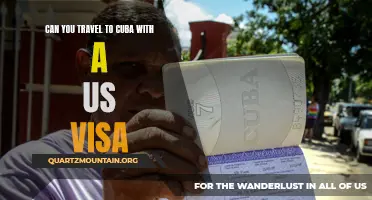
Traveling to Cuba with a US Visa: Here's What You Need to Know
- Mar 28, 2024

Traveling with a Netherlands Student Visa: Everything You Need to Know
- Mar 24, 2024
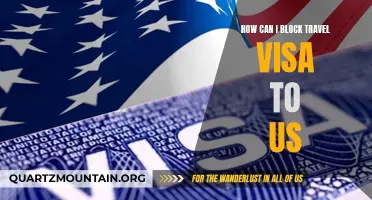
Ways to Block a Travel Visa to the US
- Apr 13, 2024
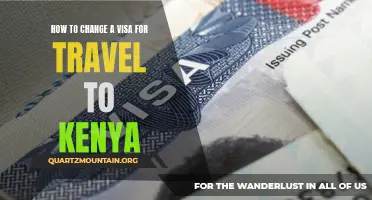
A Comprehensive Guide on How to Change Your Visa for Travel to Kenya
- May 02, 2024
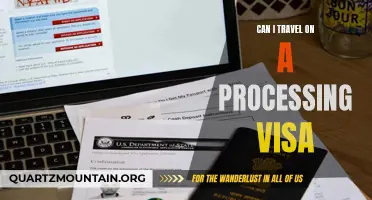
Exploring the Possibilities: Traveling on a Processing Visa
- Mar 18, 2024

Can I Travel While My Visa is Being Processed in Germany?
- Mar 23, 2024
Cookies on GOV.UK
We use some essential cookies to make this website work.
We’d like to set additional cookies to understand how you use GOV.UK, remember your settings and improve government services.
We also use cookies set by other sites to help us deliver content from their services.
You have accepted additional cookies. You can change your cookie settings at any time.
You have rejected additional cookies. You can change your cookie settings at any time.
- Passports, travel and living abroad
- Travel abroad
- Foreign travel advice
Entry requirements
This advice reflects the UK government’s understanding of current rules for people travelling on a full ‘British citizen’ passport from the UK, for the most common types of travel.
The authorities in Australia set and enforce entry rules. If you’re not sure how these requirements apply to you, contact Australia’s High Commission in the UK.
COVID-19 rules
You do not need a pre-departure COVID-19 test to enter or transit Australia regardless of your COVID-19 vaccination status. See the Australian government’s website for advice on COVID-19 and travelling.
COVID-19 quarantine requirements
Each state and territory determines its own quarantine rules. You should check requirements for specific states and territories .
Passport validity requirements
For entry into Australia, your passport should be valid for the proposed duration of your stay. If you’re transiting another country on your way to or from Australia, check the entry requirements for that country. Many countries will only allow entry if you have at least 6 months validity remaining on your passport.
Visa requirements
British citizens can usually get the following types of electronic visitor visa:
- eVisitor visa . There is no visa application charge or service fee
- Electronic Travel Authority (ETA) via the iOS App or Android App . There is no visa application charge, but a service fee of A$20 may apply
Information on all other types of visa is available from the Department of Home Affairs .
Working holiday visa
Thousands of Britons travel to Australia each year on a working holiday visa and the vast majority have no issues. Working conditions, accommodation and medical facilities are generally of a good standard.
You can find information about your rights as an employee in Australia and how to report any concerns about unfair or unlawful treatment on the Fair Work Ombudsman website , or by calling 131 394.
Get more information about working in Australia .
Dual nationals
If you’re a British national living in Australia with Australian citizenship, or a dual national, it is best to leave and enter Australia on your Australian passport. You could face difficulties and delays if you do not. See Australian government advice for dual nationals .
Vaccination requirements (other than COVID-19)
At least 8 weeks before your trip, check the vaccinations and certificates you need in TravelHealthPro’s Australia guide .
Quarantine of goods
Australia has strict quarantine rules to keep out pests and diseases that could affect plant, animal or human health.
You must fill out an Incoming Passenger Card and either:
- declare any risk goods including food, animal products and plant material (including wooden articles)
- dispose of any risk goods in the bins at the airport or sea port
All luggage is x-rayed on arrival. Any items of concern are further inspected, treated and if necessary confiscated and destroyed. You can be heavily fined for breaches of quarantine regulations.
You can find more information on the Department of Agriculture website .
You will also be asked to declare whether you have ‘visited a rural area, or been in contact with, or near, farm animals outside Australia in the past 30 days’.
Related content
Is this page useful.
- Yes this page is useful
- No this page is not useful
Help us improve GOV.UK
Don’t include personal or financial information like your National Insurance number or credit card details.
To help us improve GOV.UK, we’d like to know more about your visit today. We’ll send you a link to a feedback form. It will take only 2 minutes to fill in. Don’t worry we won’t send you spam or share your email address with anyone.
- Travel Insurance
The journalists on the editorial team at Forbes Advisor Australia base their research and opinions on objective, independent information-gathering.
When covering investment and personal finance stories, we aim to inform our readers rather than recommend specific financial product or asset classes. While we may highlight certain positives of a financial product or asset class, there is no guarantee that readers will benefit from the product or investment approach and may, in fact, make a loss if they acquire the product or adopt the approach.
To the extent any recommendations or statements of opinion or fact made in a story may constitute financial advice, they constitute general information and not personal financial advice in any form. As such, any recommendations or statements do not take into account the financial circumstances, investment objectives, tax implications, or any specific requirements of readers.
Readers of our stories should not act on any recommendation without first taking appropriate steps to verify the information in the stories consulting their independent financial adviser in order to ascertain whether the recommendation (if any) is appropriate, having regard to their investment objectives, financial situation and particular needs. Providing access to our stories should not be construed as investment advice or a solicitation to buy or sell any security or product, or to engage in or refrain from engaging in any transaction by Forbes Advisor Australia. In comparing various financial products and services, we are unable to compare every provider in the market so our rankings do not constitute a comprehensive review of a particular sector. While we do go to great lengths to ensure our ranking criteria matches the concerns of consumers, we cannot guarantee that every relevant feature of a financial product will be reviewed. We make every effort to provide accurate and up-to-date information. However, Forbes Advisor Australia cannot guarantee the accuracy, completeness or timeliness of this website. Forbes Advisor Australia accepts no responsibility to update any person regarding any inaccuracy, omission or change in information in our stories or any other information made available to a person, nor any obligation to furnish the person with any further information.
Travel Insurance For Vietnam: Everything You Need To Know
Updated: Apr 26, 2024, 11:14am
Table of Contents
Do australians need travel insurance for vietnam, what does travel insurance for vietnam cover, frequently asked questions (faqs).
Vietnam is an increasingly popular travel destination for Australians, with the country even hoping to encourage more Aussies to visit by potentially waiving visa requirements in due time.
The Southeast Asian country is set to be high on the list for Aussies going overseas in 2024. The number of Australian tourists in Vietnam now exceeds pre-pandemic levels: more than 317,000 Australians visited Vietnam in 2019 , while there were 390,000 Aussie visitors in 2023.
Plus, as more and more flights become available, such as low-cost carrier Vietjet Air launching a direct service between Hanoi and Melbourne earlier this year, getting to Vietnam is becoming easier for Australians.
If the direct flights, fascinating history, vast scenery and delicious food aren’t enough to convince Australian travellers, the cost may be. Vietnam is considered one of the cheapest travel destinations in the world for Australian tourists due to our strong conversion rate against the Vietnamese Dong and the nation’s low cost of living in comparison to our own.
And while cheap thrills may be what you’re after on your vacation, it’s important not to skimp on the necessities that may cost that little bit extra—such as travel insurance. This guide outlines what you need to know regarding travel insurance in Vietnam.
Featured Partners
Fast Cover Travel Insurance
On Fast Cover’s Secure Website
Medical cover
Unlimited, 24/7 Emergency Assistance
Cancellations
Unlimited, (Trip Disruption $50,000)
Key Features
25-Day Cooling Off Period, Australian Based Call Centre, 4.6 Star Product Review Rating
Cover-More Travel Insurance

On Cover-more’s secure website
Unlimited, with a $2000 limit to dental
Yes, amount chosen by customer
Southern Cross Travel Insurance

Medical Cover
Including medical treatment, doctors’ visits, prescribed medication, specialist treatment & medical transport costs
$2,500 with option to increase to unlimited
Investing in travel insurance is a good idea for any overseas trip. Travel insurance policies can help protect you from having to dive deep into your pockets, with many offering unlimited medical treatment while abroad and cancellation cover for your trip should the unexpected occur.
Travel insurance is not just handy for medical purposes or travel changes, either. Your personal items can be covered, should any baggage go missing or an important item be stolen—which, unfortunately, often occurs in Vietnam.
Smarttraveller warns Australians to be alert at all times in Vietnam, considering petty theft–including bag slashing–is common in tourist areas and crowded places, especially during holiday times. Snatch-and-grab theft by thieves on motorcycles is also common, the website states.
Like most international travel insurance policies, you will be able to find basic coverage for your trip to Vietnam, or choose to opt for a more comprehensive, albeit more expensive, policy.
While a basic policy will often cover medical expenses and lost luggage,a comprehensive policy includes a lot more. Most basic policies also likely won’t offer compensation for travel delays, stolen cash, accidental death and more.
Additionally, if you are going on a trip to multiple countries within the year, it may be worth opting for an ‘annual multi trip’ insurance instead—making sure that there are no exclusions to the regions you are wishing to visit.
Visa Requirements For Australians Travelling to Vietnam
You’ll still be allowed to travel to Vietnam if you don’t invest in travel insurance, but you do so at your own risk—and, as stated, it is highly advised to have a travel insurance policy for any overseas trip.
However, what you cannot do is enter Vietnam as an Australian tourist without a tourist visa. While Vietnam will grant Australian citizens visas on arrival, applying for one online is much easier.
A tourist visa costs under $100 AUD; however the exact price depends on your length of stay.
The Vietnamese government may consider waiving visas for Australian citizens, especially since many other SEA countries have done so such as Indonesia and Thailand .
However, at the time of writing, Forbes Advisor Australia has confirmed that Australian citizens must still obtain a visa to visit Vietnam for tourism purposes.
The exact inclusions of your travel insurance will be dependent on your personal policy and the provider.
However, generally speaking, you can expect a travel insurance policy for Vietnam to offer some level of cover for:
- Medical expenses;
- Lost, damaged or stolen luggage;
- Travel cancellations or delays ;
- Personal liability;
- Credit card fraud;
- Covid-19 expenses;
If you are partaking in certain sports and activities, you will need to make sure that you choose a policy that covers them. You’ll also need to make sure that your policy covers any pre-existing medical conditions as well.
Plus, if you are travelling with valuables, you may wish to opt for a policy that lets you increase the protection cover on your items.
Ultimately, you need to consider what your trip consists of, what you will be taking with you, and your physical health to establish what policies would be appropriate for you.
From there, you can compare quotes of different policies and providers to ensure you have the optimal—yet affordable—cover for your trip to Vietnam.
Does Travel Insurance Cover The Ha-Giang Loop?
Considered one of the most scenic motorcycle routes in the world, the Ha-Giang Loop is a popular tourist activity in Vietnam for adventurous travellers. If the Ha-Giang Loop is one of your goals, you’ll need to make sure you have travel insurance that covers motorcycling.
Occasionally a policy may include this as one of their included ‘sports and activities’, but it is more often the case that you will need to purchase an additional ‘adventure pack’ that is either specific to, or includes, motorsports.
Even so, when purchasing an additional pack to cover motorbikes, you need to be cautious of the conditions. For example, some policies will only cover motorcycle riding if the bike you are riding has an engine under a certain size.
Often, coverage will cease and claims won’t be accepted if you haven’t been wearing the correct safety equipment such as boots and a helmet, or have been under the influence of drugs and alcohol.
What Does Travel Insurance Exclude?
Your travel insurance policy may exclude some activities that you wish to partake in, unless you can opt-in to purchase an additional adventure pack as explained above in regards to motorbike riding.
Just like with the inclusions of a policy, the exclusions depend on what type of policy you choose, and what provider you go with.
Commonly, however, you won’t be covered for instances where you:
- Break the law;
- Are under the influence of alcohol or drugs;
- Partake in an excluded activity;
- Receive medical treatment for a pre-existing condition that was not disclosed;
- Travel to a ‘Do Not Travel’ destination as outlined by Smarttraveller.
As always, it is essential to read the product disclosure statement (PDS) of your travel insurance policy carefully to understand what you will and won’t be covered for while overseas.
Do I need a visa to travel to Vietnam?
Yes, as of April 2024, Australian tourists still need a visa to travel to Vietnam. This visa can be obtained on arrival, or purchased online prior to travel. The visa takes approximately three days to process online, and the cost depends on how long you intend to stay in the country.
Does international travel insurance cover Covid-19?
Many comprehensive travel insurance policies now cover Covid-19, including medical conditions related to Covid-19 or trip cancellations due to a Covid-19 diagnosis. However, it is not guaranteed that all policies will. It’s important to check your policy’s PDS carefully to understand what it will and will not cover in regards to Covid-19 for both you and your travelling companions.
Related: Travel Insurance And Covid: Are You Covered?
How much does travel insurance cost for Vietnam?
The cost of your travel insurance for a trip to Vietnam will depend on your age, your health, the activities you wish to partake in, and the length of your stay.
For example, for a 34 year old with no pre-existing medical conditions travelling to Vietnam for two weeks, a policy from some of our top choices for comprehensive travel insurance would cost around $130 (based on quotes from Cover-More , 1Cover , and Fast Cover ).
The prices of these quotes would change depending on a chosen excess, cancellation cover, and any additional coverage options you may choose to purchase such as adventure packs or cruise cover.
Related: How Much Does Travel Insurance Cost?
- Best Comprehensive Travel Insurance
- Best Seniors Travel Insurance
- Best Domestic Travel Insurance
- Best Cruise Travel Insurance
- Best Family Travel Insurance
- Travel Insurance Cost
- Pregnancy Travel Insurance Guide
- Travel Insurance Cancellation Cover
- Travel Insurance For Bali
- Travel Insurance For Fiji
- Travel Insurance For The USA
- Travel Insurance For Thailand
- Travel Insurance For New Zealand
- Travel Insurance For Japan
- Travel Insurance For Europe
- Travel Insurance For Singapore
- Travel Insurance For Indonesia
- Travel Insurance For Canada
- Travel Insurance For South Africa
- Cover-More Travel Insurance Review
- Fast Cover Travel Insurance Review
- Travel Insurance Saver Review
- Allianz Comprehensive Travel Insurance Review
- 1Cover Comprehensive Travel Insurance Review
- Australia Post Comprehensive Travel Insurance Review
- Tick Travel Insurance Review
More from
Do frequent flyer points expire, travel insurance for canada: what you need to know before you go, travel insurance for south africa: everything you need to know, tick travel insurance top cover review: features, pros and cons, was discovery travel insurance review: features, pros and cons, fast cover comprehensive travel insurance review: pros and cons.
Sophie Venz is an experienced editor and features reporter, and has previously worked in the small business and start-up reporting space. Previously the Associate Editor of SmartCompany, Sophie has worked closely with finance experts and columnists around Australia and internationally.

Australia Recommends 2024

Come and Say G'day

G'day, the short film

Discover your Australia

Travel videos

Deals and offers

Australian Capital Territory

New South Wales

Northern Territory

South Australia

Western Australia

External Territories

The Whitsundays

Mornington Peninsula

Port Douglas

Ningaloo Reef

Airlie Beach

Kangaroo Island

Rottnest Island

Hamilton Island

Lord Howe Island

Tiwi Islands

Phillip Island

Bruny Island

Margaret River

Barossa Valley

The Grampians

Hunter Valley

Yarra Valley

McLaren Vale

Glass House Mountains

Alice Springs

Uluru and Kata Tjuta

The Kimberley

Flinders Ranges

Kakadu National Park

Eyre Peninsula

Karijini National Park

Great Barrier Reef

Blue Mountains

Daintree Rainforest

Great Ocean Road

Purnululu National Park

Cradle Mountain-Lake St Clair National Park

Litchfield National Park

Aboriginal experiences

Arts and culture

Festivals and events

Food and drink

Adventure and sports

Walks and hikes

Road trips and drives

Beaches and islands

Nature and national parks

Eco-friendly travel

Health and wellness

Family travel

Family destinations

Family road trips

Backpacking

Work and holiday

Beginner's guide

Accessible travel

Planning tips

Trip planner

Australian budget guide

Itinerary planner

Find a travel agent

Find accommodation

Find transport

Visitor information centres
Deals and travel packages

Visa and entry requirements FAQ

Customs and biosecurity

Working Holiday Maker visas

Facts about Australia

Experiences that will make you feel like an Aussie

People and culture

Health and safety FAQ

Cities, states & territories

Iconic places and attractions

When is the best time to visit Australia?

Seasonal travel

Events and festivals

School holidays

Public holidays
How to get to Australia's most iconic cities

How long do I need for my trip to Australia?

How to travel around Australia

Guide to driving in Australia

How to hire a car or campervan

How to plan a family road trip

How to plan an outback road trip

- Australian visa information
- Working holiday visas

Sydney Airport, New South Wales © Sydney Airport
Travelling to Australia from the UK: Visa and Entry Requirements FAQs
Learn about visa requirements for entry to Australia for tourism purposes with this list of frequently asked questions.
Please note this page is intended to provide general information only and does not constitute legal advice. Tourism Australia is not the Australian government visa granting authority. For information on visas to enter Australia, visitors should seek the most up-to-date information from Australian Government Department of Home Affairs .*
Ready to plan your trip? We're ready to welcome you! Here are some helpful tips for getting your visa sorted:
- Be sure to secure the appropriate visa before travelling to Australia. Use the Visa Finder to explore your options.
- Ensure all details are correct and provide all required documents when you apply. An incomplete or incorrect application can delay your visa.
- Submitting multiple applications at the same time can slow the process. For visitor visas, submit one application per person, including children.
- Questions? The Australian Government's Global Service Centre can help.
Australian Visa Information
Unless you are an Australian citizen, you will need a valid Australian visa to enter the country. New Zealand passport holders can apply for a visa upon arrival in the country. All other passport holders, regardless of age, must apply for a visa before leaving home. You can apply for a range of Australian visa types, including tourist visas and working holiday visas, via the ETA app or on the Department of Home Affairs website.
There are different Australian visa types available for travellers to Australia. Knowing which Australian visa to apply for depends on the length of your stay, your passport and the purpose of your visit. You’ll also need to meet certain financial and medical requirements, be outside of Australia when applying and maintain health insurance for the duration of your stay.
Electronic Travel Authority visa (subclass 601) This visa allows you to visit Australia as many times as you want, for up to a year, and stay for three months each visit. This visa is available to passport holders from a number of countries and regions, who live outside Australia. A step-by-step guide on how to apply is here .
All ETA-eligible passport holders must apply for an ETA using the Australian ETA app. Agents can assist you in the application process, but you must be physically present as a live facial image is required.
eVisitor (subclass 651) This is a free visa for multiple visits to Australia for tourism or business purposes for up to three months at a time within a 12-month period. This visa is available to passport holders from a number of European countries and it cannot be extended.
Visitor visa (subclass 600) The Visitor visa allows you to visit Australia, either for tourism or business purposes. It is open to all nationalities. Generally, a period of stay of up to three months is granted, but up to 12 months may be granted in certain circumstances. Applicants will have to pay a fee to submit their application.
The application process may differ depending on which visa you need.
You can only apply for the Electronic Travel Authority visa (subclass 601) through the Australian ETA app. A step-by-step guide on how to apply is located here .
For other visas, you can apply online by creating an ImmiAccount and completing the application process. Be sure to submit your application well in advance of your travel date to allow enough time for processing. You may be asked to provide further supporting information. You will be notified in writing if your tourist visa is approved and it will be digitally linked to your passport. For more information on different visa types, and Australian visa requirements including how to apply for an Australian visa, visit the Department of Home Affairs website.
If you are already in Australia and hold a valid Electronic Travel Authority visa (subclass 601) you can extend your stay by applying for another visa, such as a Visitor visa (subclass 600). An eVisitor (subclass 651) cannot be extended.
See the Department of Home Affairs website for details.
Working Holiday Visas
Australia's Working Holiday Maker program allows visitors aged under 30 (or 35 in certain cases) who hold a passport from a participating country to travel and work in Australia. Working holiday visas are valid for one year, or up to three years if you meet certain conditions.
Find out more about working holiday visas here .
*Australian visa regulations (including visa application charges) change from time to time. The information provided here is valid at the time of publication, but visitors should check this information is still current by visiting the Australian Department of Home Affairs .
More articles like this
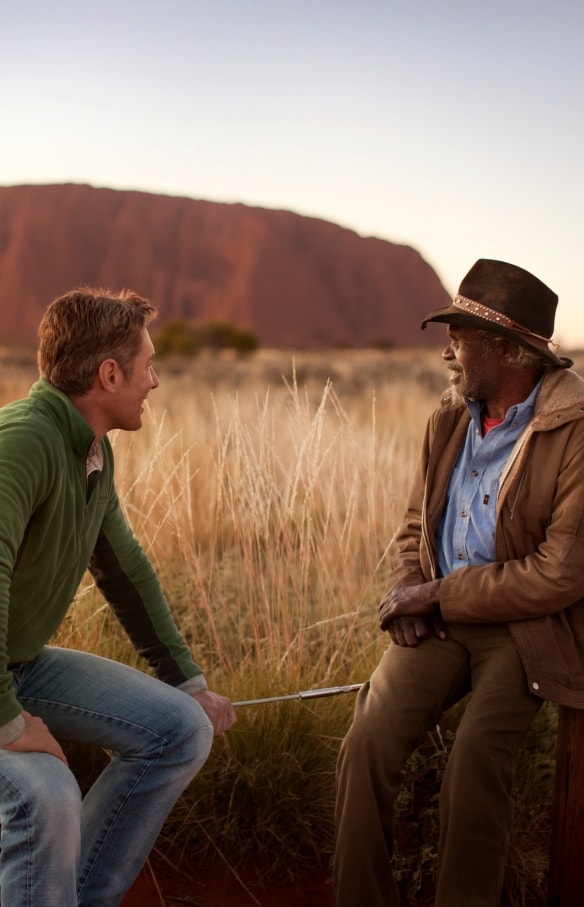
Acknowledgement of Country

We acknowledge the Traditional Aboriginal and Torres Strait Islander Owners of the land, sea and waters of the Australian continent, and recognise their custodianship of culture and Country for over 60,000 years.
- International (English)
- New Zealand (English)
- United States (English)
- Canada (English)
- India (English)
- Malaysia (English)
- Singapore (English)
- Indonesia (Bahasa Indonesia)
- Deutschland (Deutsch)
- France (Français)
- Italia (Italiano)
- 中国大陆 (简体中文)
*Product Disclaimer: Tourism Australia is not the owner, operator, advertiser or promoter of the listed products and services. Information on listed products and services, including Covid-safe accreditations, are provided by the third-party operator on their website or as published on Australian Tourism Data Warehouse where applicable. Rates are indicative based on the minimum and maximum available prices of products and services. Please visit the operator’s website for further information. All prices quoted are in Australian dollars (AUD). Tourism Australia makes no representations whatsoever about any other websites which you may access through its websites such as australia.com. Some websites which are linked to the Tourism Australia website are independent from Tourism Australia and are not under the control of Tourism Australia. Tourism Australia does not endorse or accept any responsibility for the use of websites which are owned or operated by third parties and makes no representation or warranty in relation to the standard, class or fitness for purpose of any services, nor does it endorse or in any respect warrant any products or services by virtue of any information, material or content linked from or to this site.

IMAGES
VIDEO
COMMENTS
chest x-ray examination (if aged 11 or older) Serum creatinine/eGFR (if aged 15 years or older) You are pregnant and intend to have the baby in Australia. hepatitis B test. You are 15 years old or older and intend to work as, or study or train to be a doctor, dentist, nurse or paramedic. medical examination.
Health requirements and panel physicians. Australia enjoys some of the best health standards in the world. To maintain these standards, most visa applicants are required to meet certain minimum health standards in order to be granted a visa. We refer to this as meeting 'the health requirement'. For information on meeting the health requirement ...
Unless you are an Australian citizen, you will need a valid Australian visa to enter the country. New Zealand passport holders can apply for a visa upon arrival in the country. All other passport holders, regardless of age, must apply for a visa before leaving home. You can apply for a range of Australian visa types, including tourist visas and ...
All applicants for permanent migration visas are required to undergo a full medical examination and chest x-ray with a "panel doctor" (see below) before a visa can be granted. Some applicants for temporary stay visas may also be required to undergo one or both examinations, or provide a "fitness to travel" letter from a doctor before a ...
Health Insurance; At a later date, you may be required to obtain and submit the following: ... Yes, you can get a 3-year visitor visa to Australia if are from an eligible country and meet the requirements. Australian Visitor Visa is issued for 6 months, 1 year or 3 years depending on your nationality and circumstances. For example, Indian ...
This article has been reviewed by Wego's editorial team to ensure that the content is up to date & accurate. Updated September 2023 Australia is globally celebrated for its breathtaking natural landscapes, a flourishing economy that contributes to an exceptional standard of living, and a well-developed healthcare system. The country places a paramount emphasis on the […]
Visas to visit Australia. Whether you are visiting Australia for less than 72 hours or planning on a stay of several years you must have a valid Australian visa. A visa is a form of permission for a non-citizen to enter, transit or remain in a particular country. Information on visas to Australia can be found at the Department of Home Affairs.
Check out this link to have a full understanding of the health requirements in your visa application. Please note that your visa application will only be processed once you complete the medical examination requirements. Go back to the main article: How to Apply for an Australian Tourist Visa: A Complete Guide for Filipino Tourists
Nearly everyone applying for a visa to visit or live in Australia will need to meet the health requirement, with many forced to undergo a physical health assessment depending on the purpose of the ...
Visitor visa: Commonly known as the visitor visa 600, this allows you to visit as a tourist or business visitor for up to 3, 6 or 12 months. Each visa has different conditions depending on individual circumstances. Work and holiday visa/ Working holiday visa: These are both for young people aged 18-30 who want to holiday and work in Australia ...
If you arrive on an ETA with criminal convictions, you could be refused entry to Australia. Additionally, if you do not meet the health requirements you should apply for a Visitor visa (subclass 600), rather than an ETA. To start an online application you will need to create an ImmiAccount or login to your existing account.
Follow the tips below to help you apply for a visitor visa to come to Australia. . Submit your application well in advance of your travel. Attach all required d ocuments. You must submit all the documents we ask for with your application, including a clear copy of the personal details page of your passport.
The Australian Government does not currently have any COVID-19 requirements in place for travellers entering and departing Australia. COVID-19 however continues to pose a health risk in Australia and overseas. We strongly encourage wearing masks and being vaccinated while travelling internationally.
Visitor visa (subclass 600) Electronic Travel Authority (subclass 601) eVisitor (subclass 651) Invitation letter for tourist visa; ... Meeting Australian visa health requirements. Australia enjoys some of the best health standards in the world. To maintain these standards, most visa applicants must meet minimum health standards before we will ...
In 2022, the department implemented a series of regulatory and policy changes to address the adverse impacts of Covid-19. One such measure included temporary concessions for both visa holders and applicants concerning health examinations for temporary visa applications. The objective was to streamline the application process for temporary visas.
Health requirements for the Australian Tourist Visa. The general health requirements for the Australian Tourist Visa are:-to be in good health overall-to have health insurance covered. Medical examination. You may be asked to undergo additional health examinations. The need to schedule a doctor visit depends on numerous factors, some of which ...
Enroll in the Smart Traveler Enrollment Program (STEP) to receive security messages and make it easier to locate you in an emergency. Call us in Washington, D.C. at 1-888-407-4747 (toll-free in the United States and Canada) or 1-202-501-4444 (from all other countries) from 8:00 a.m. to 8:00 p.m., Eastern Standard Time, Monday through Friday ...
Health and character requirements: Australian immigration law requires all visa applicants to meet certain health and character requirements. Depending on the type of visa you are applying for, you may need to undergo a medical examination and provide a police clearance certificate from each country you have lived in for more than 12 months in ...
Find out the latest FCDO travel advice for Australia, including visa, health and quarantine requirements, and local laws and customs.
Check the requirements of the visa you are applying for. Prospective visitors to Australia are encouraged to shop around to get the best value private health insurance product for their time in Australia. Private Health cover provided by Australian or overseas health insurance companies may be acceptable.
Yes, as of April 2024, Australian tourists still need a visa to travel to Vietnam. This visa can be obtained on arrival, or purchased online prior to travel. The visa takes approximately three ...
Unless you are an Australian citizen, you will need a valid Australian visa to enter the country. New Zealand passport holders can apply for a visa upon arrival in the country. All other passport holders, regardless of age, must apply for a visa before leaving home. You can apply for a range of Australian visa types, including tourist visas and ...